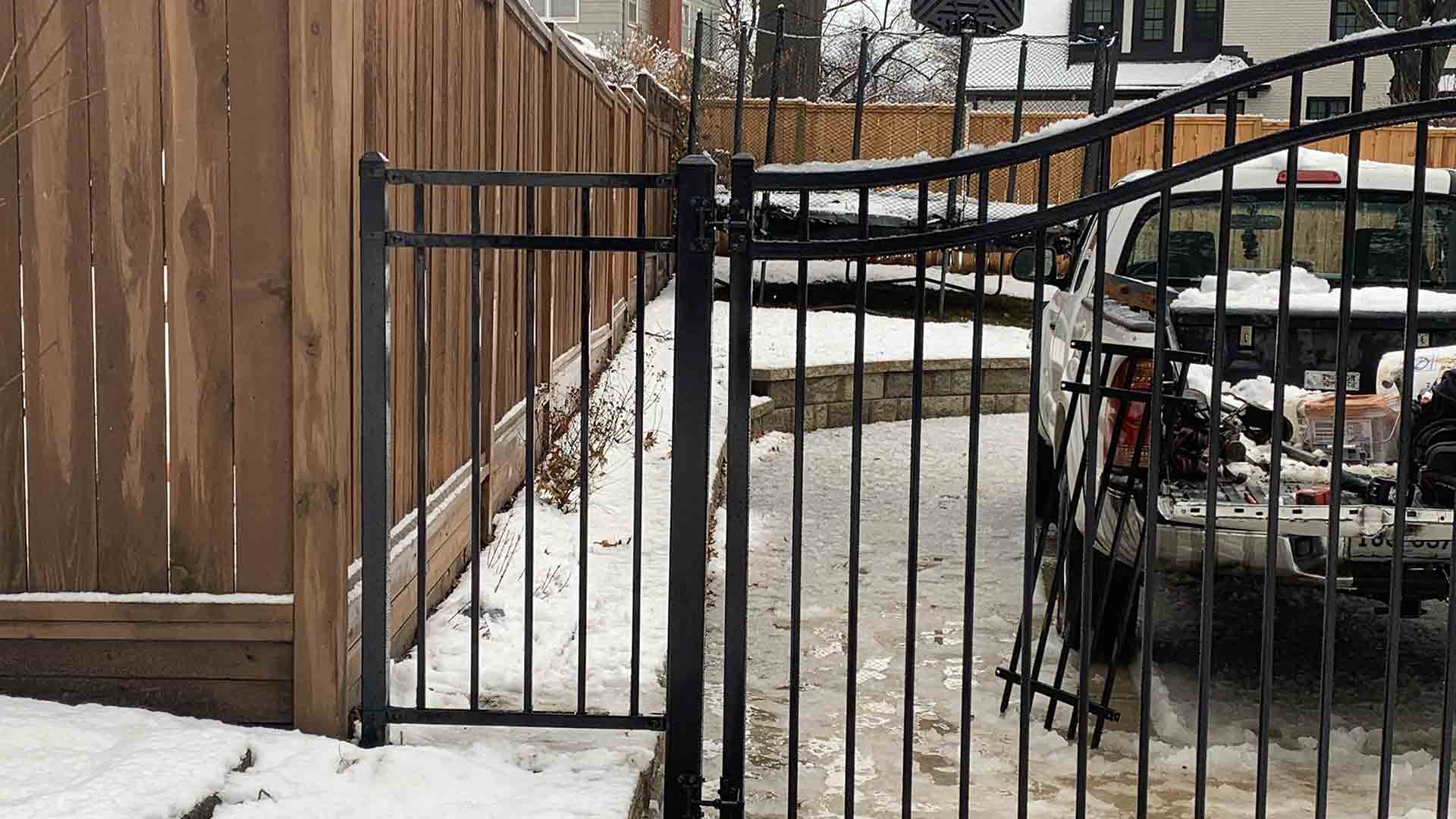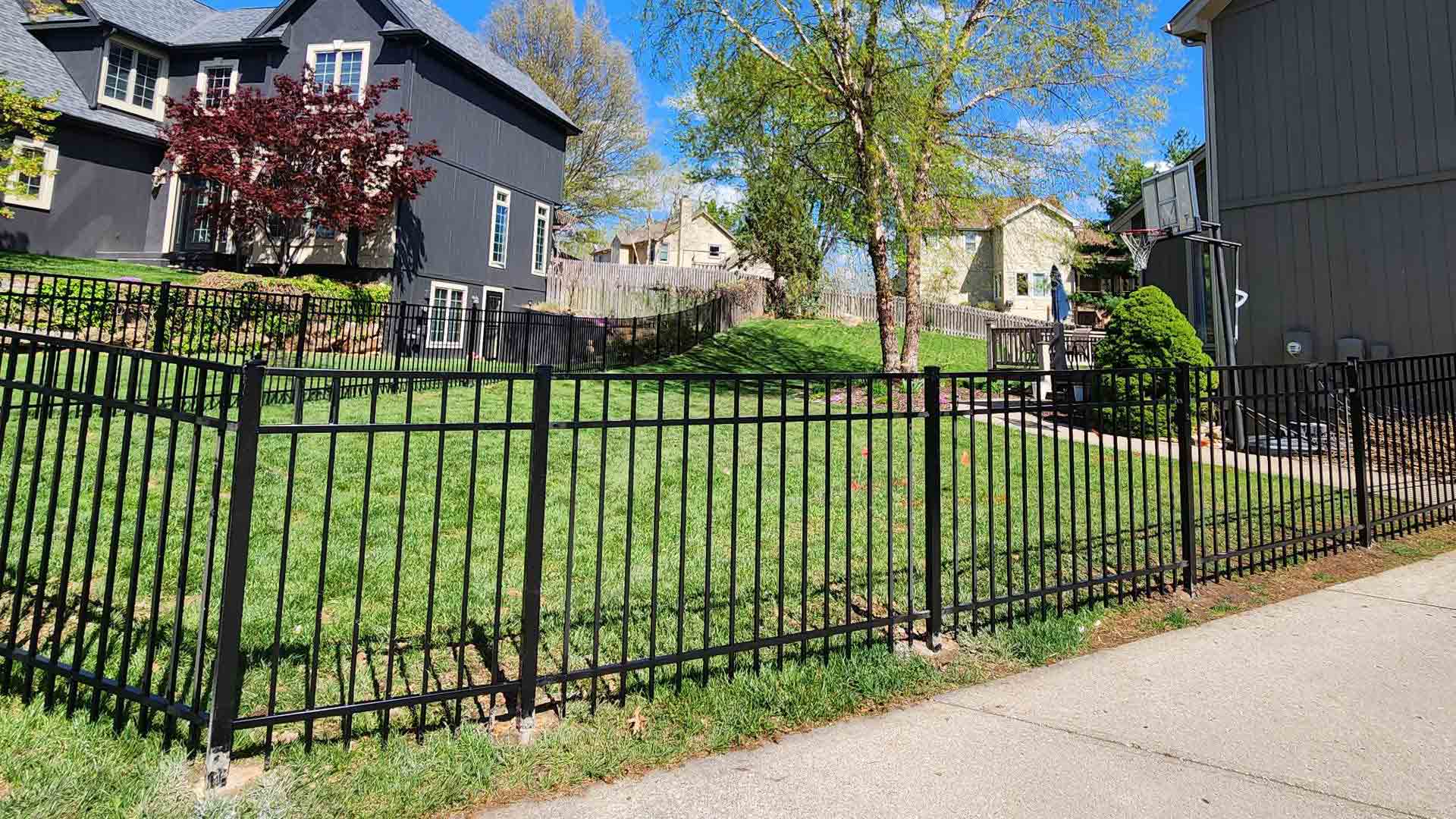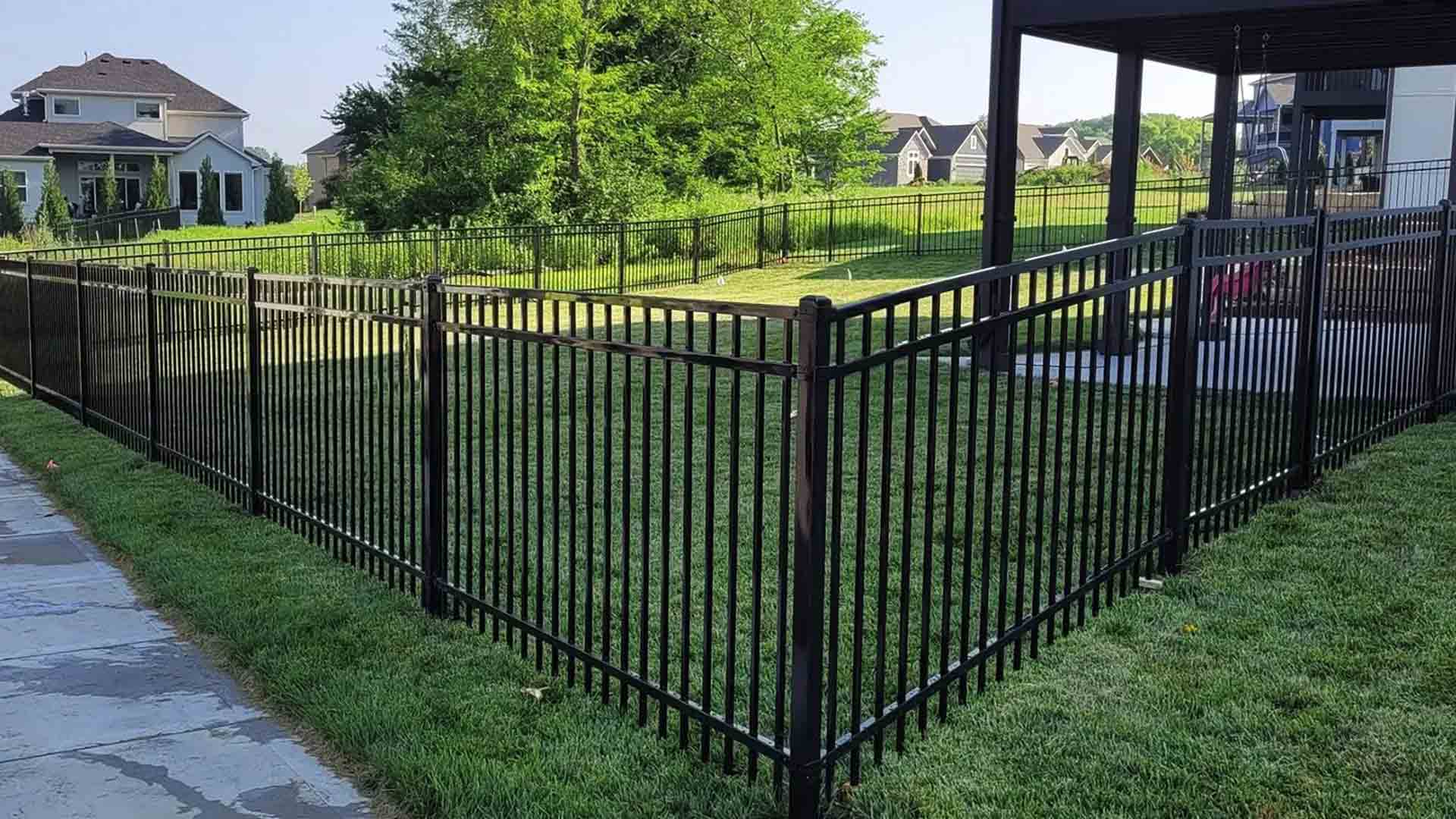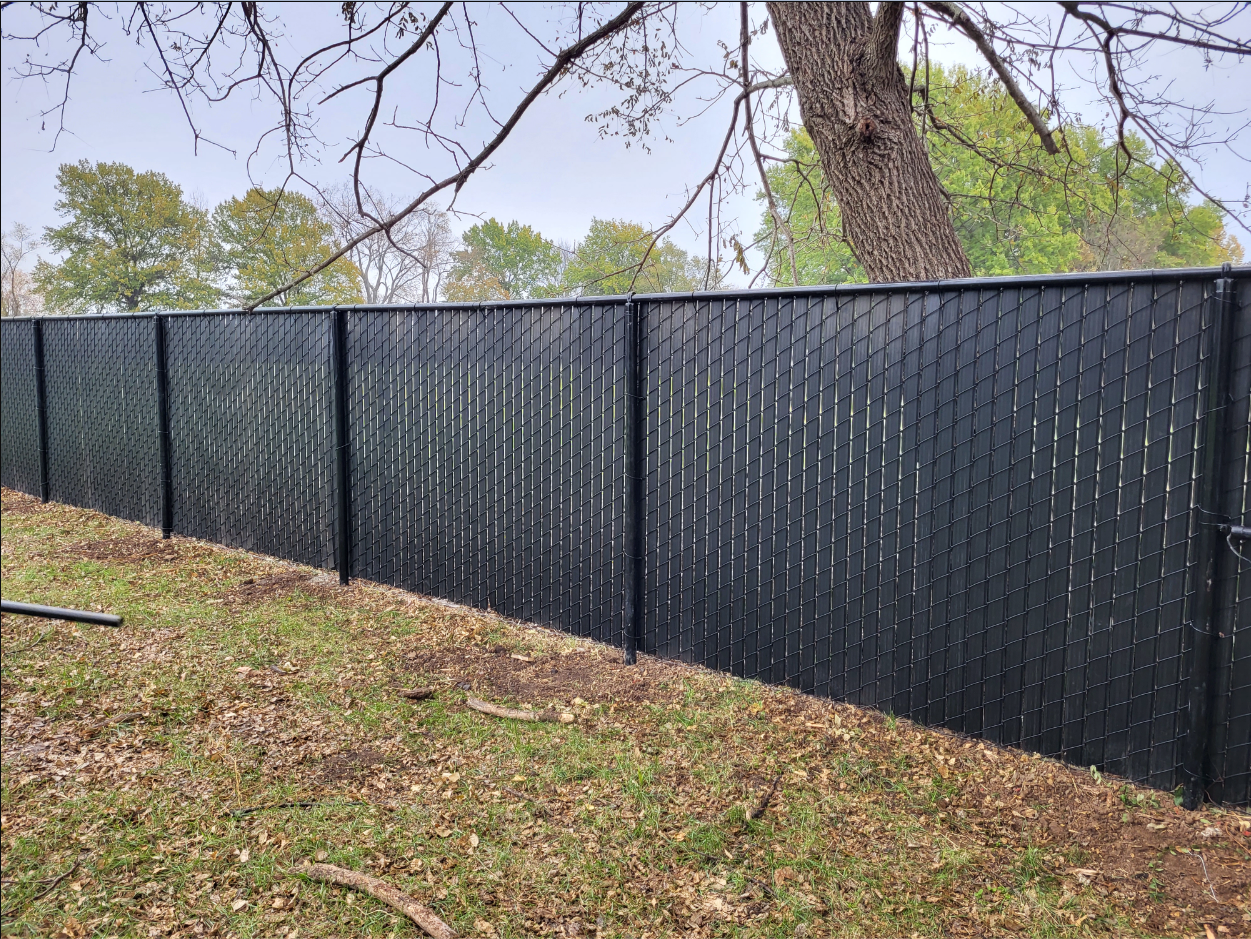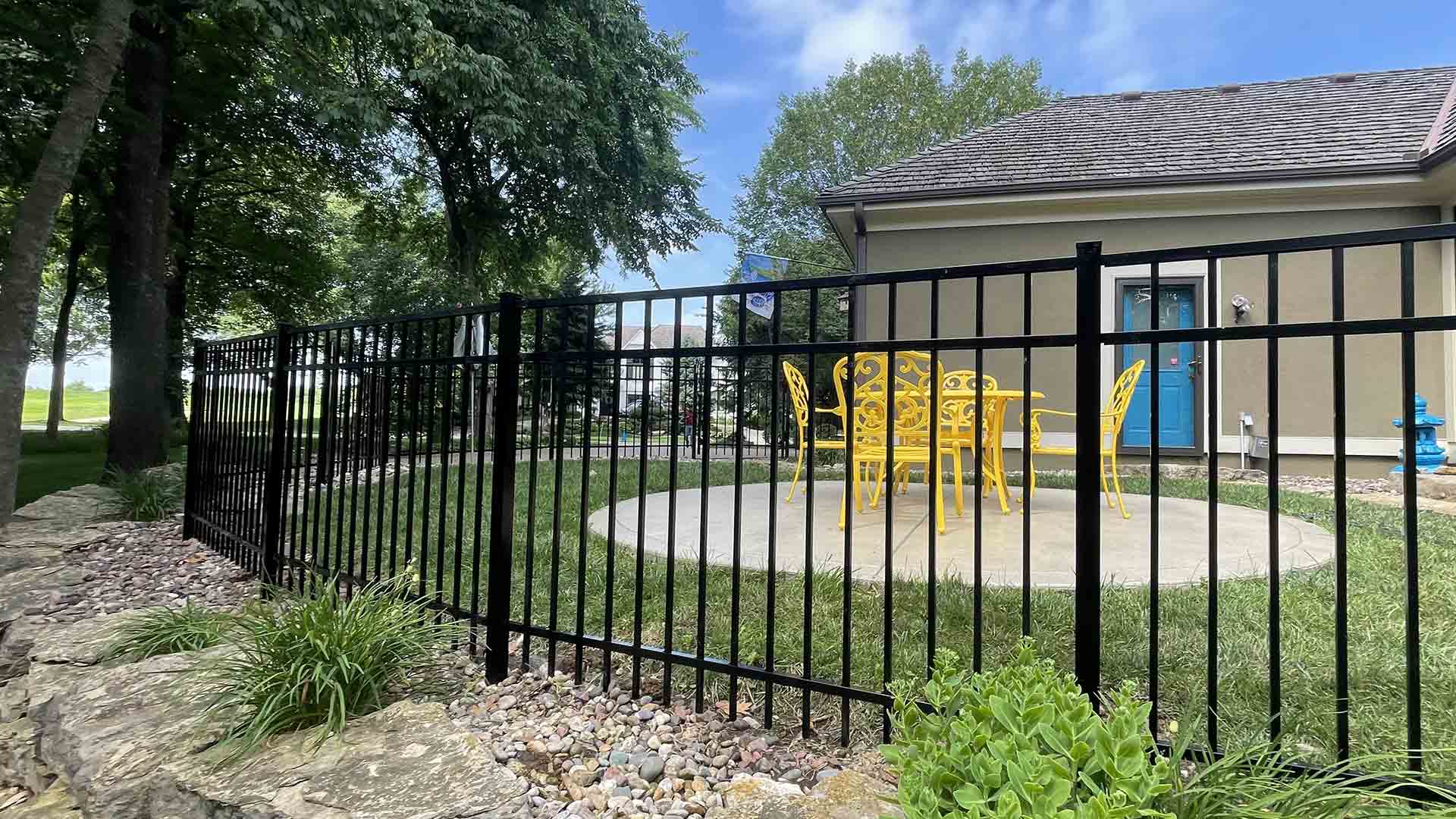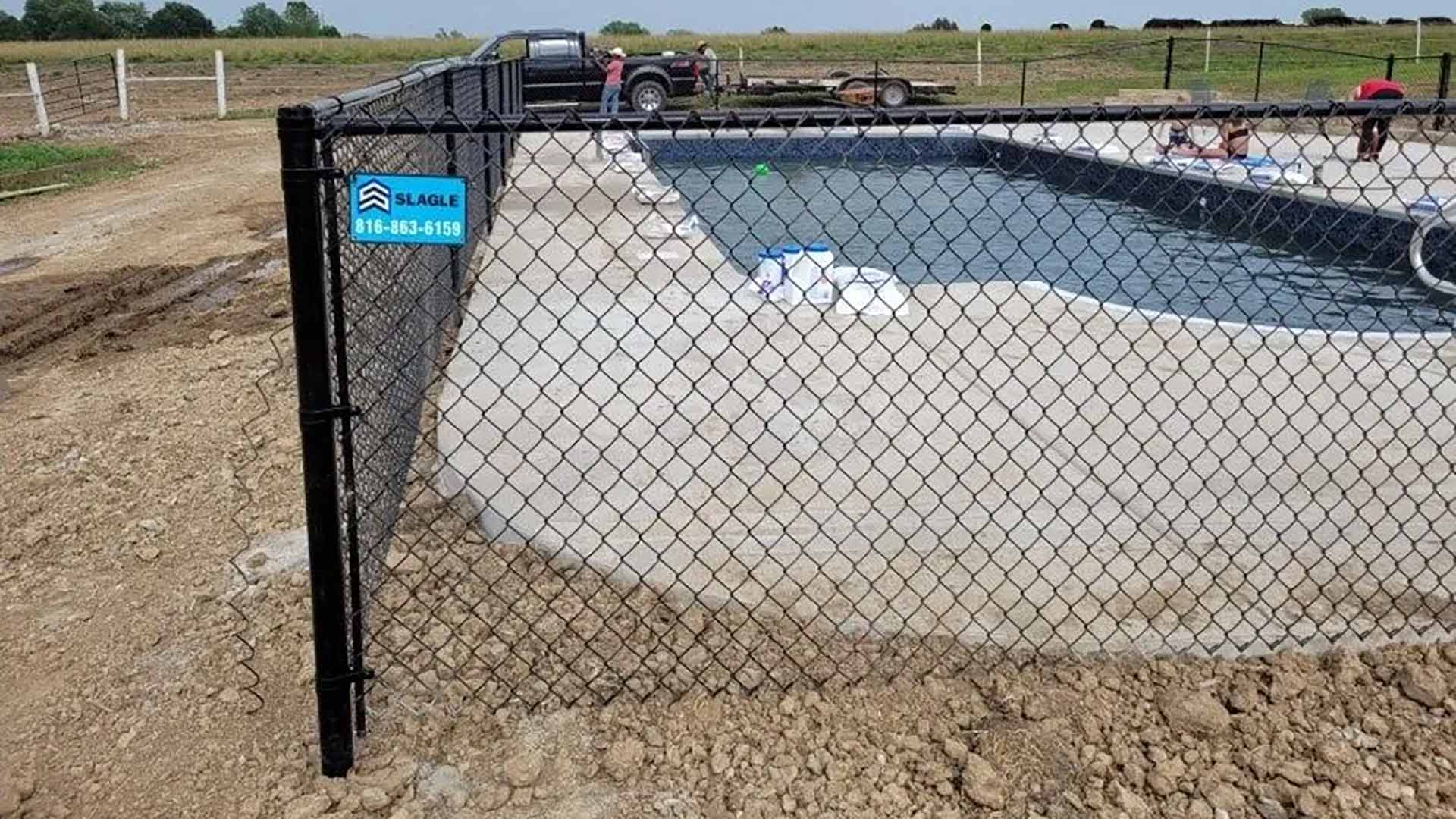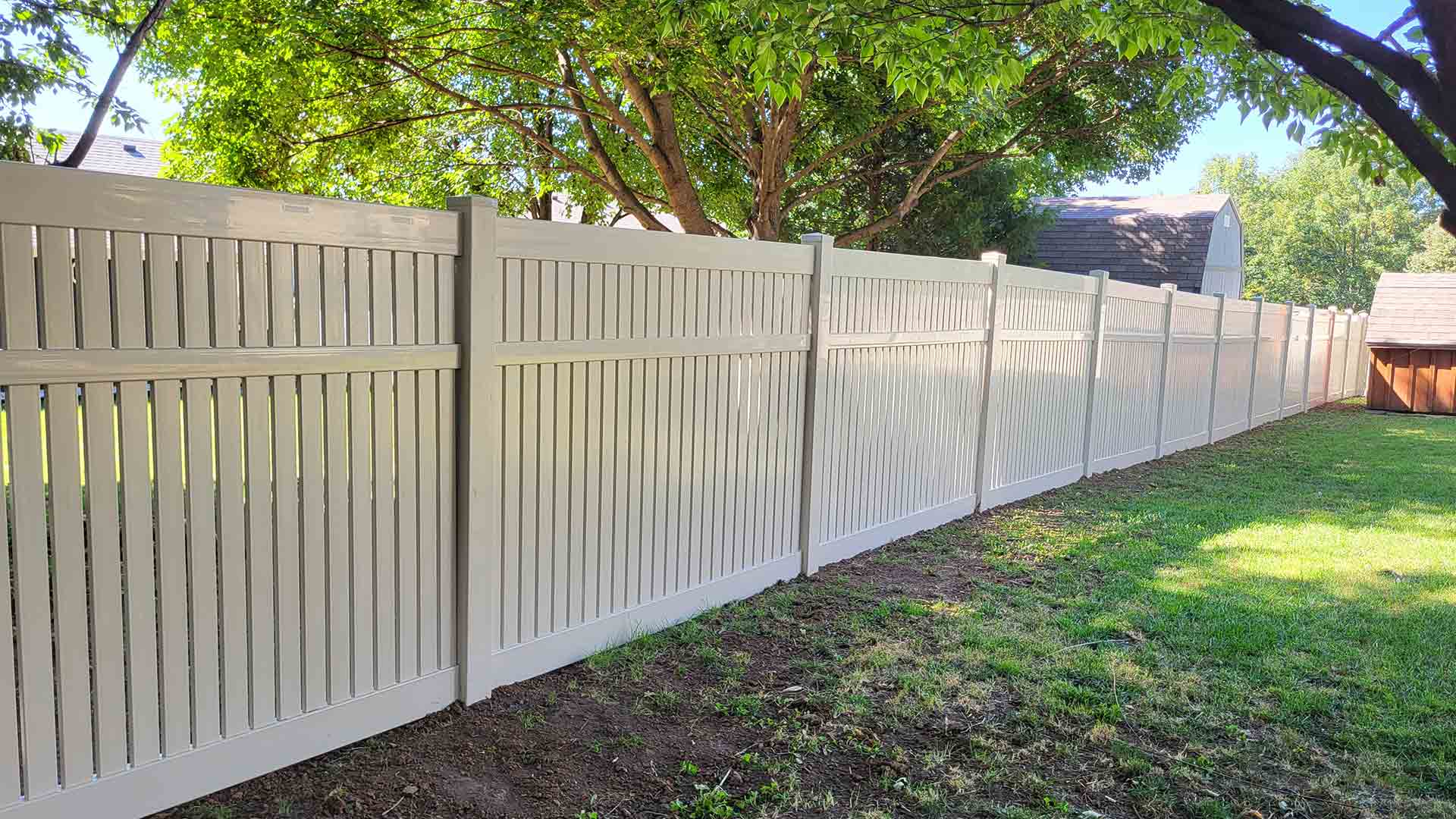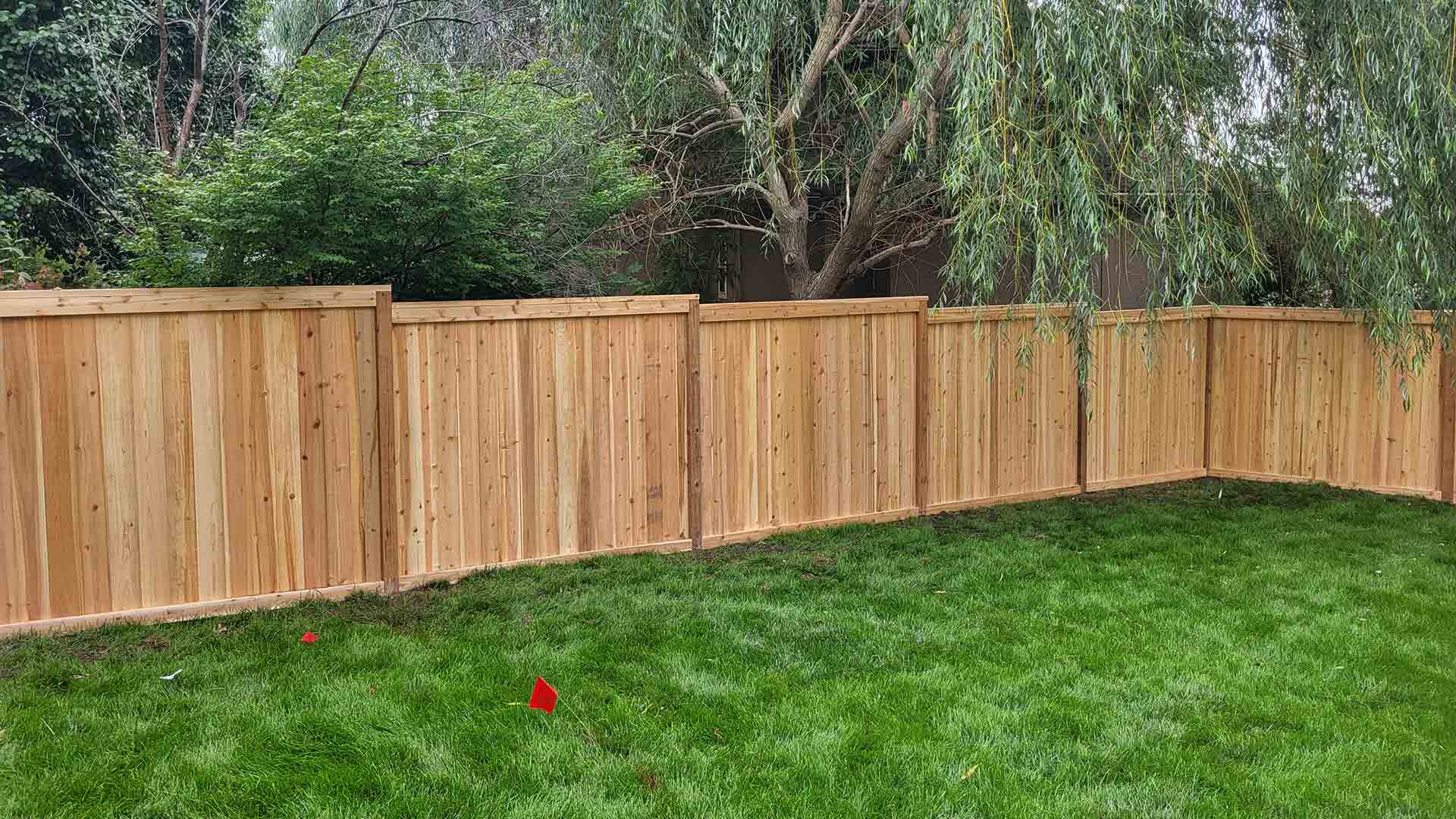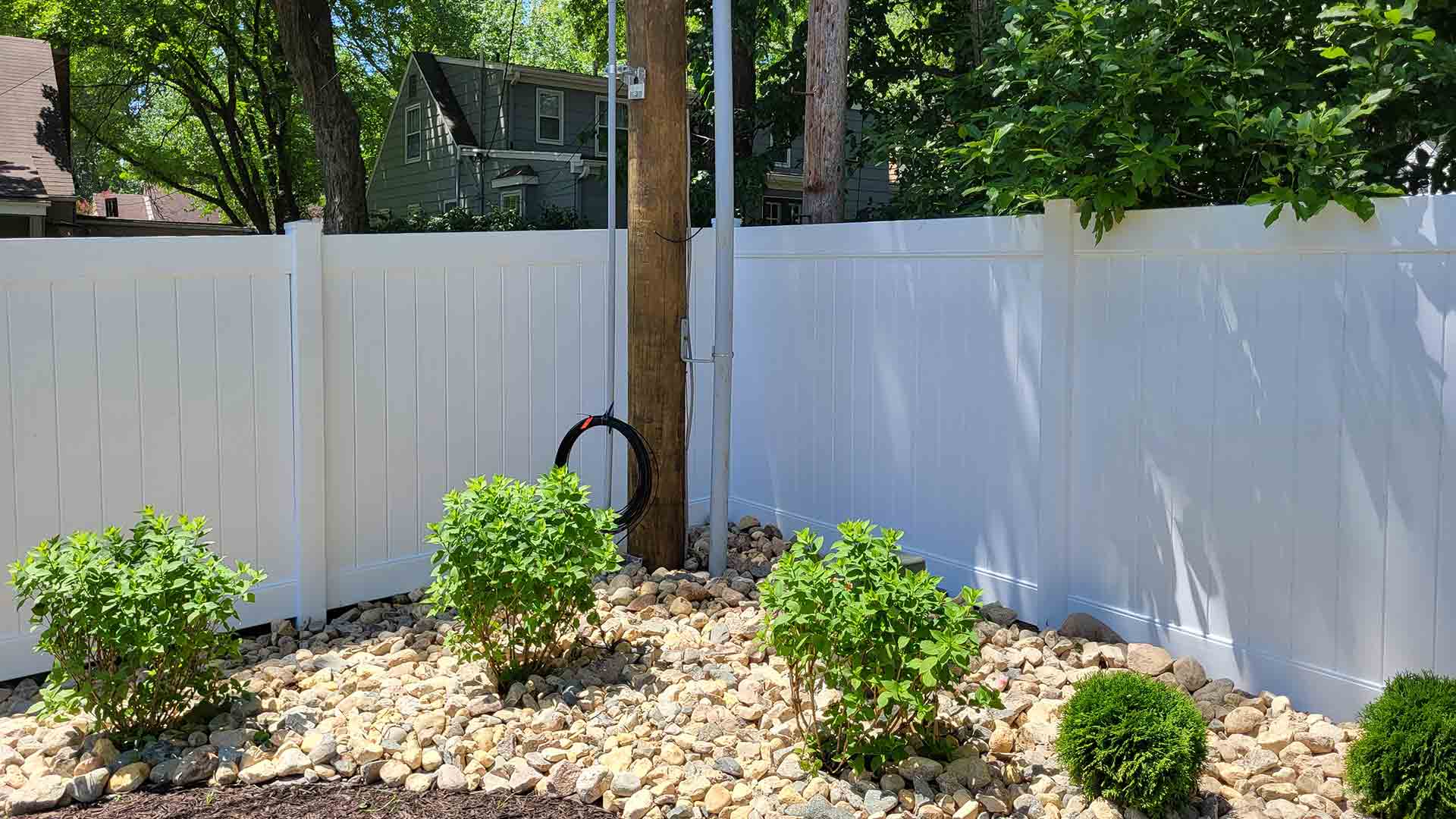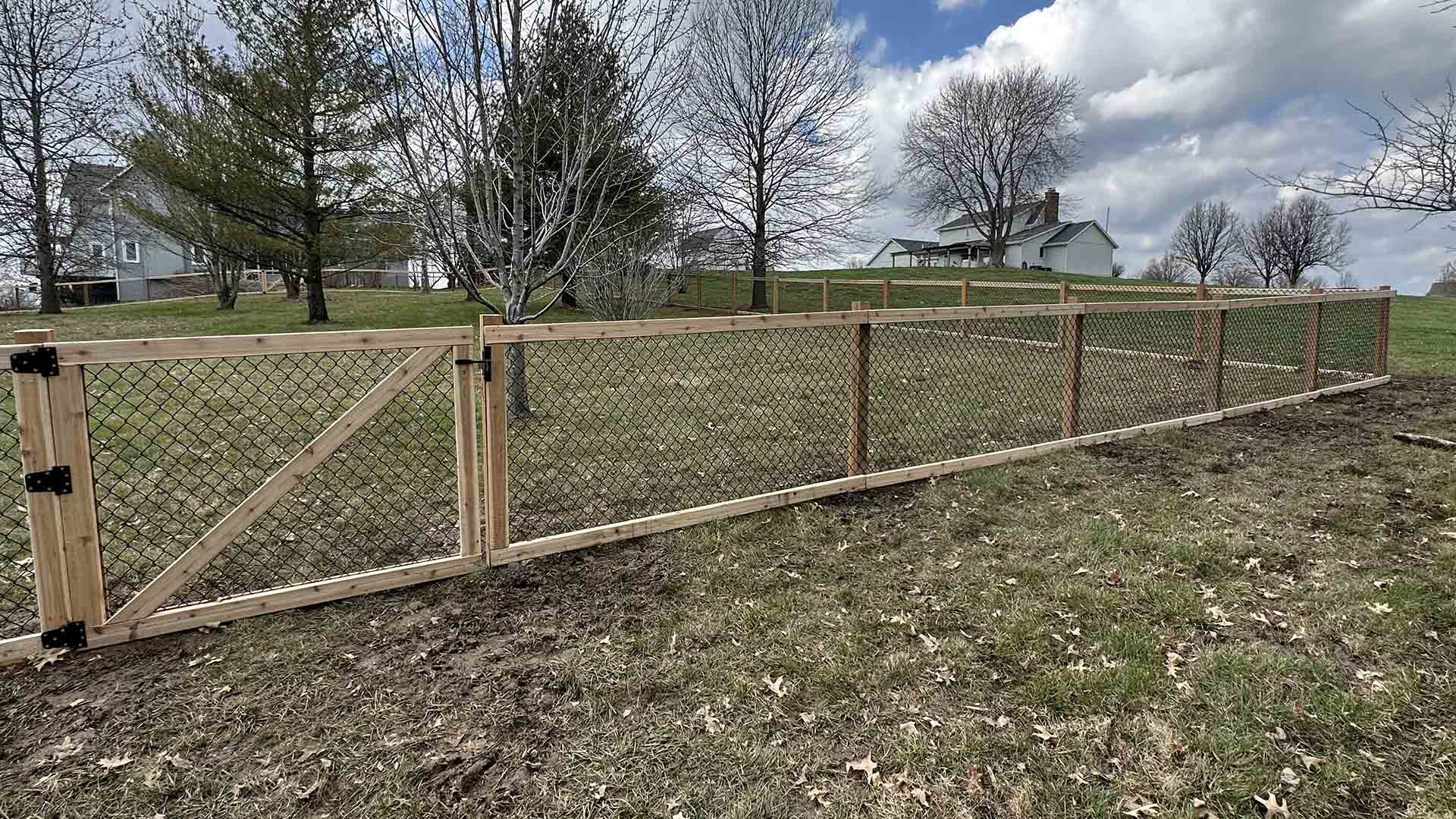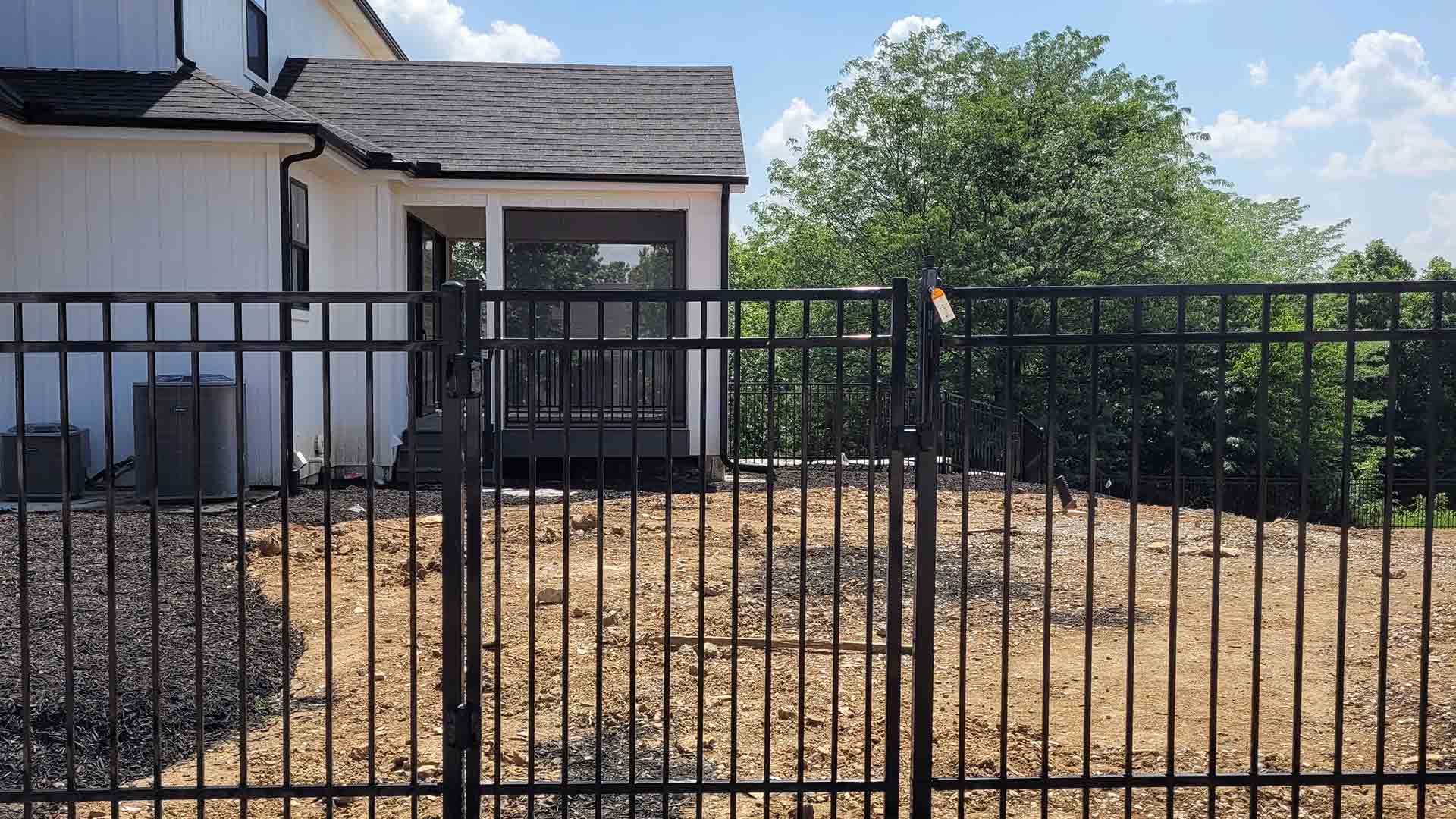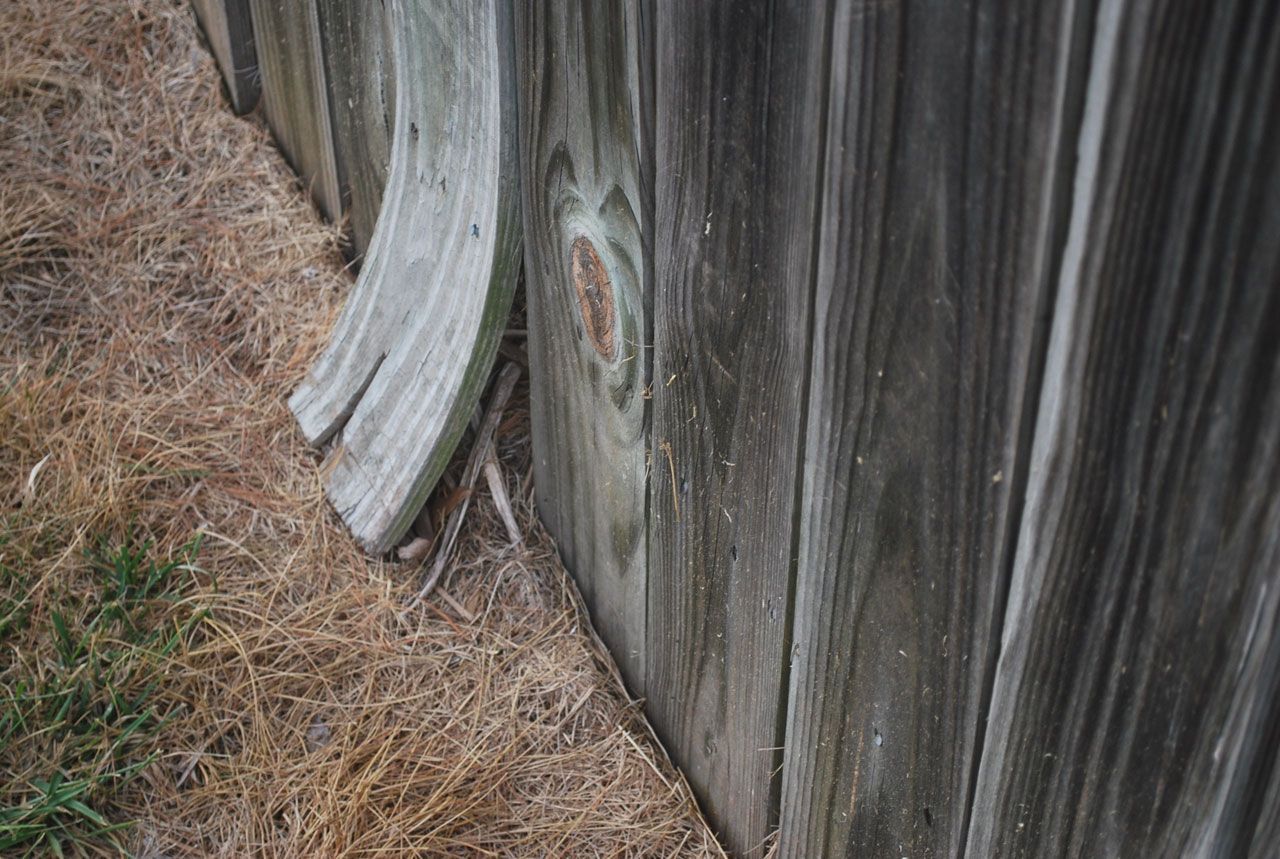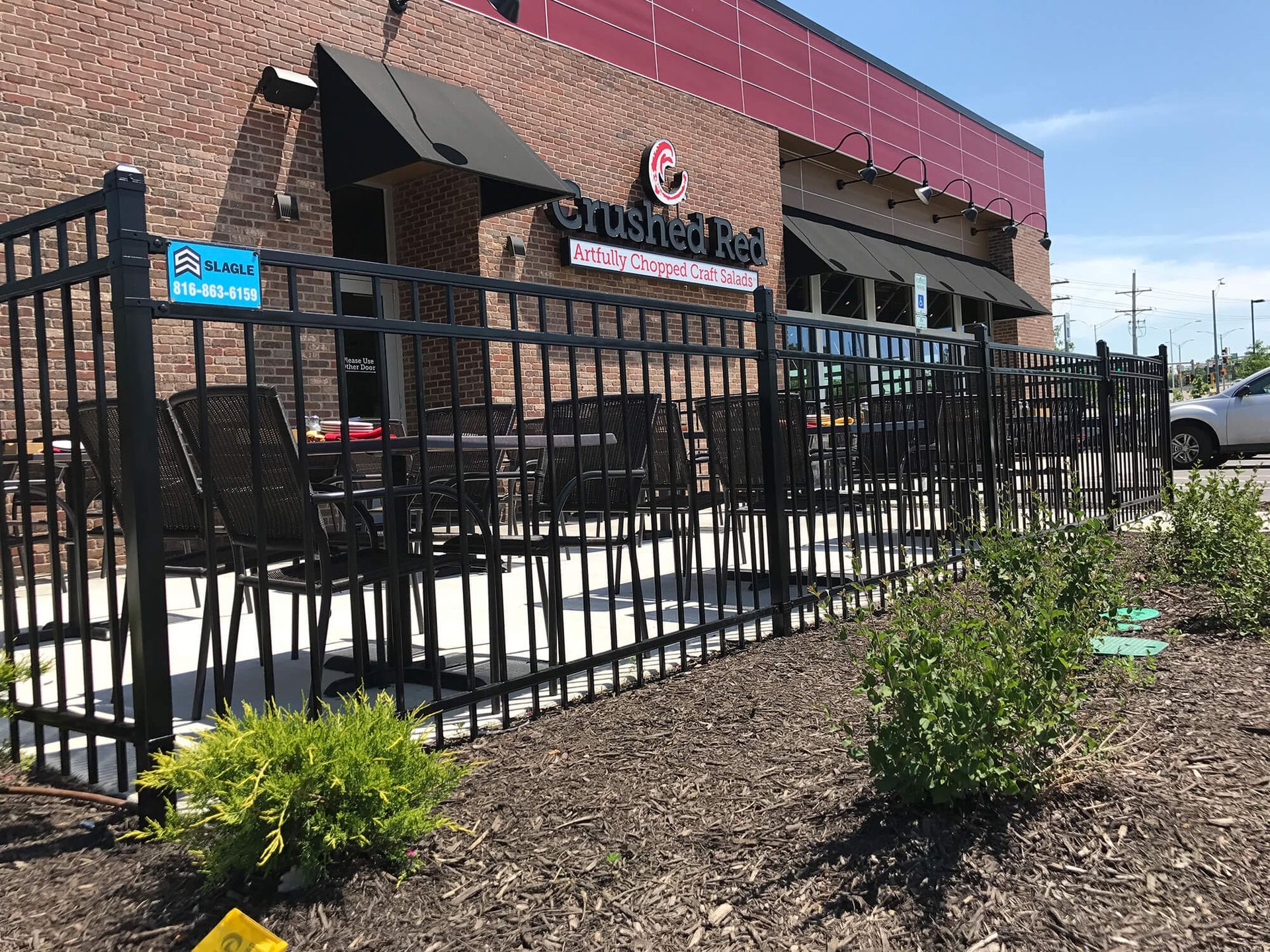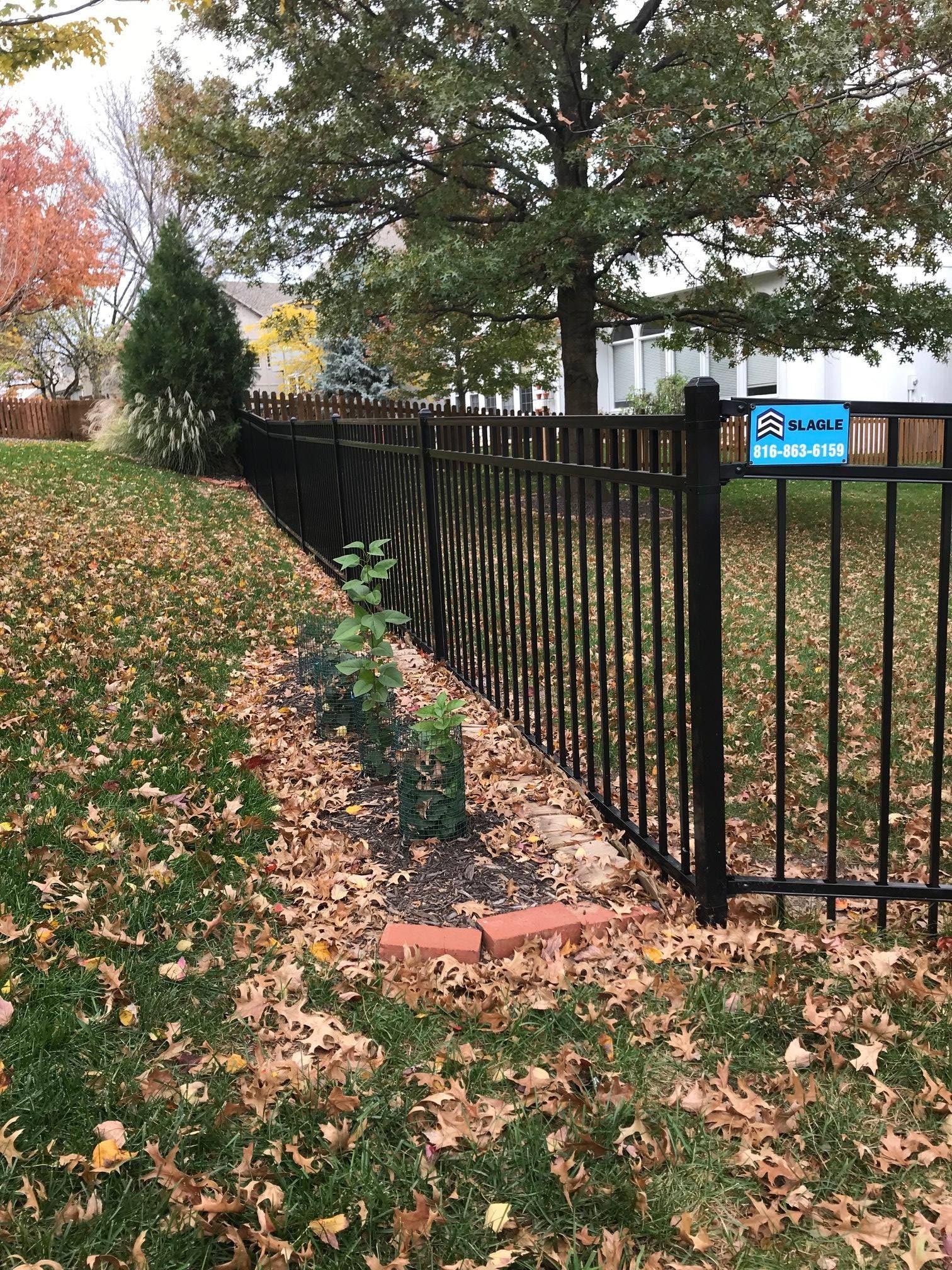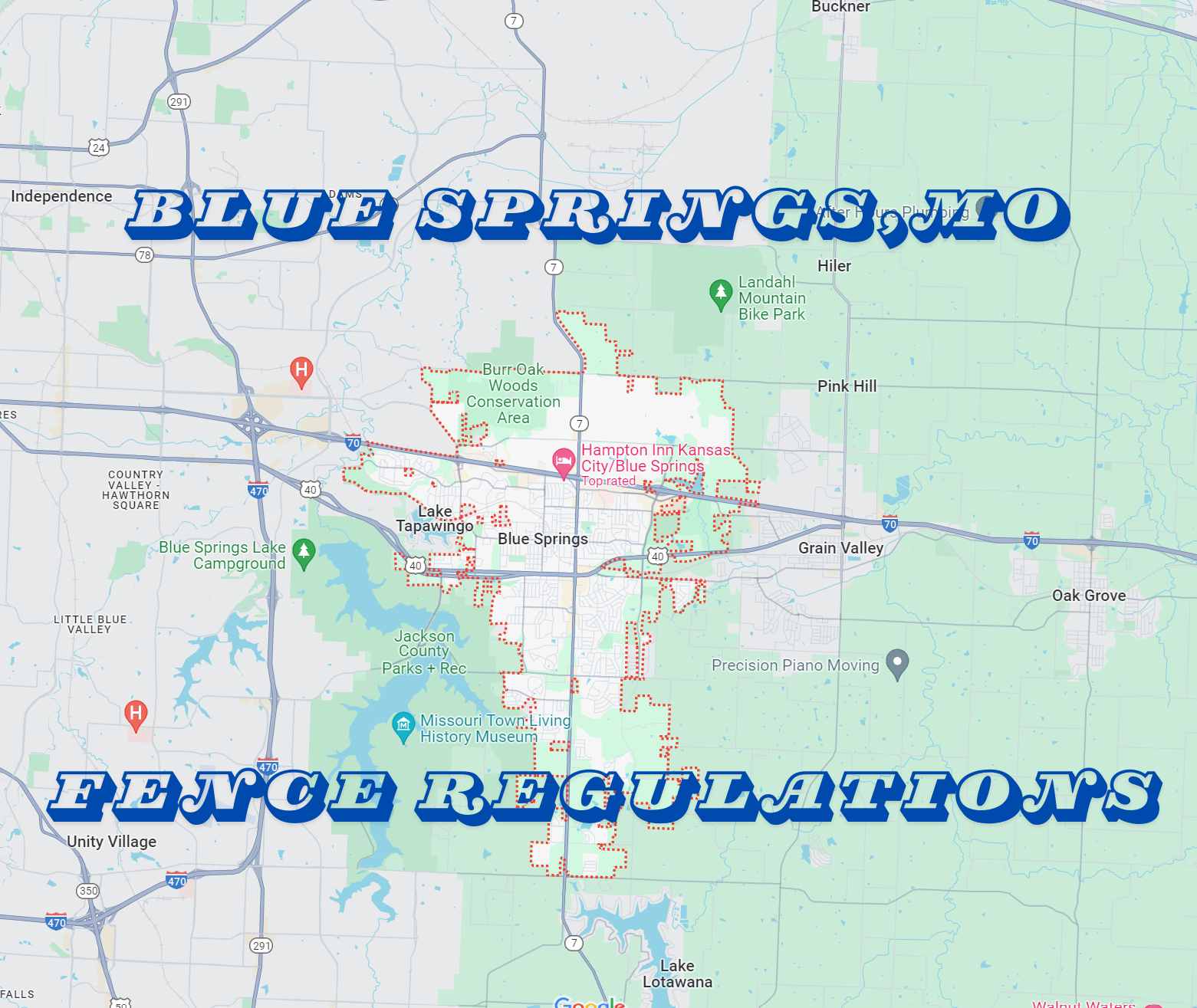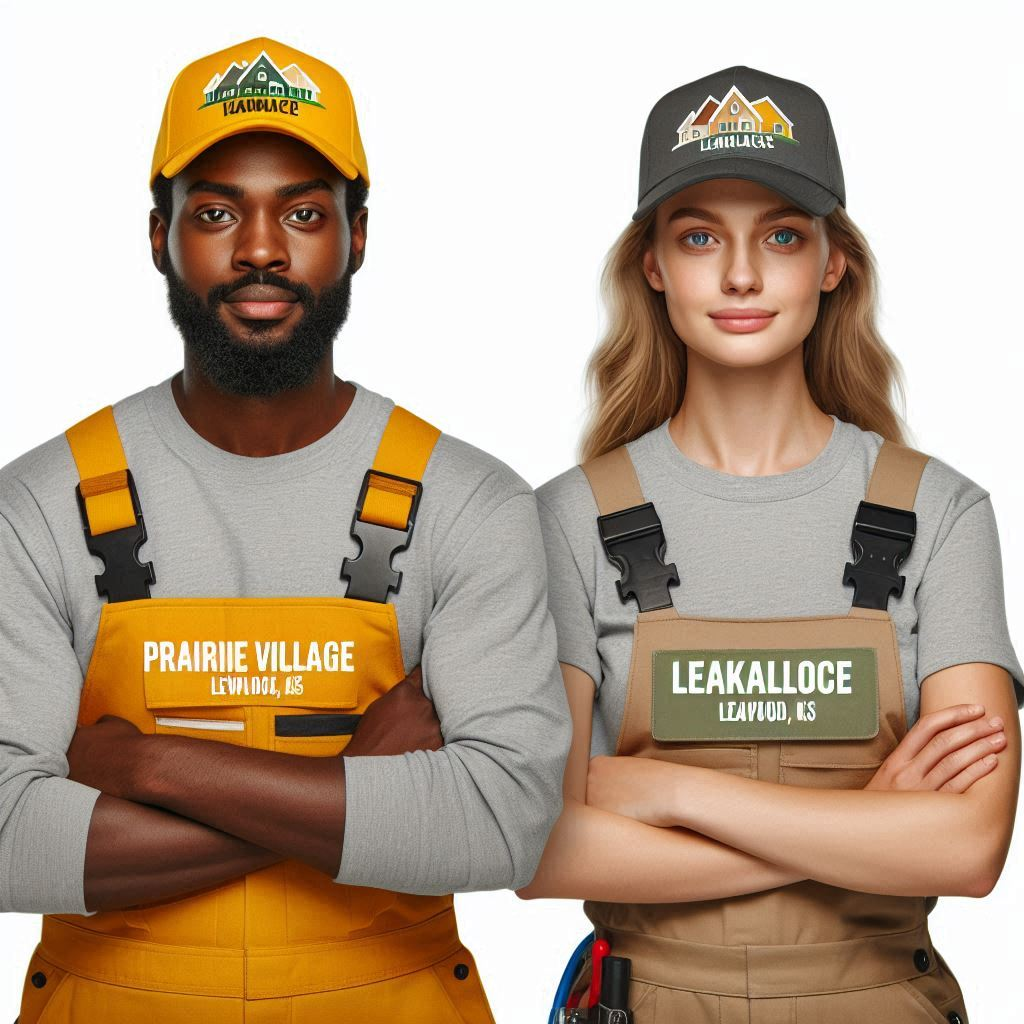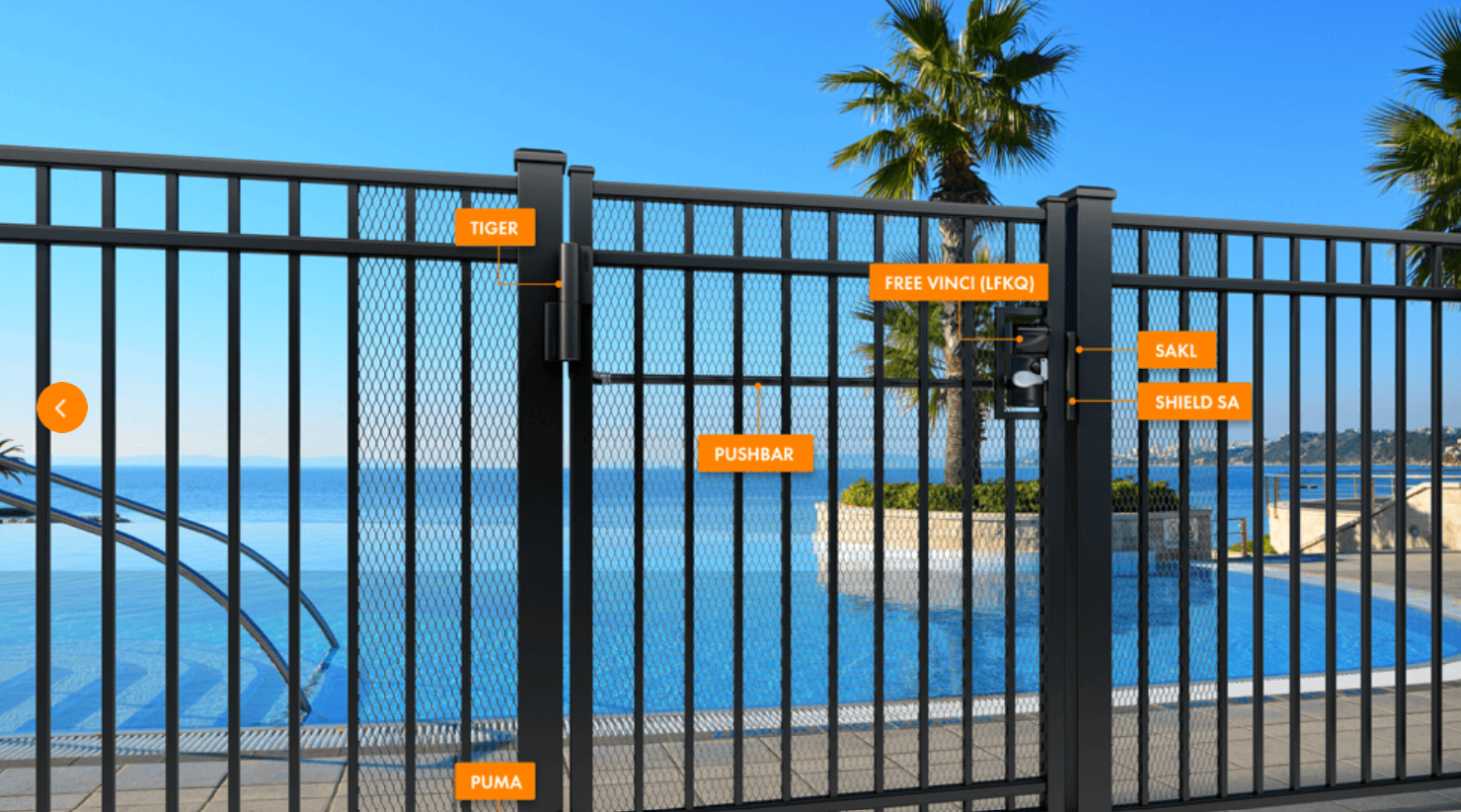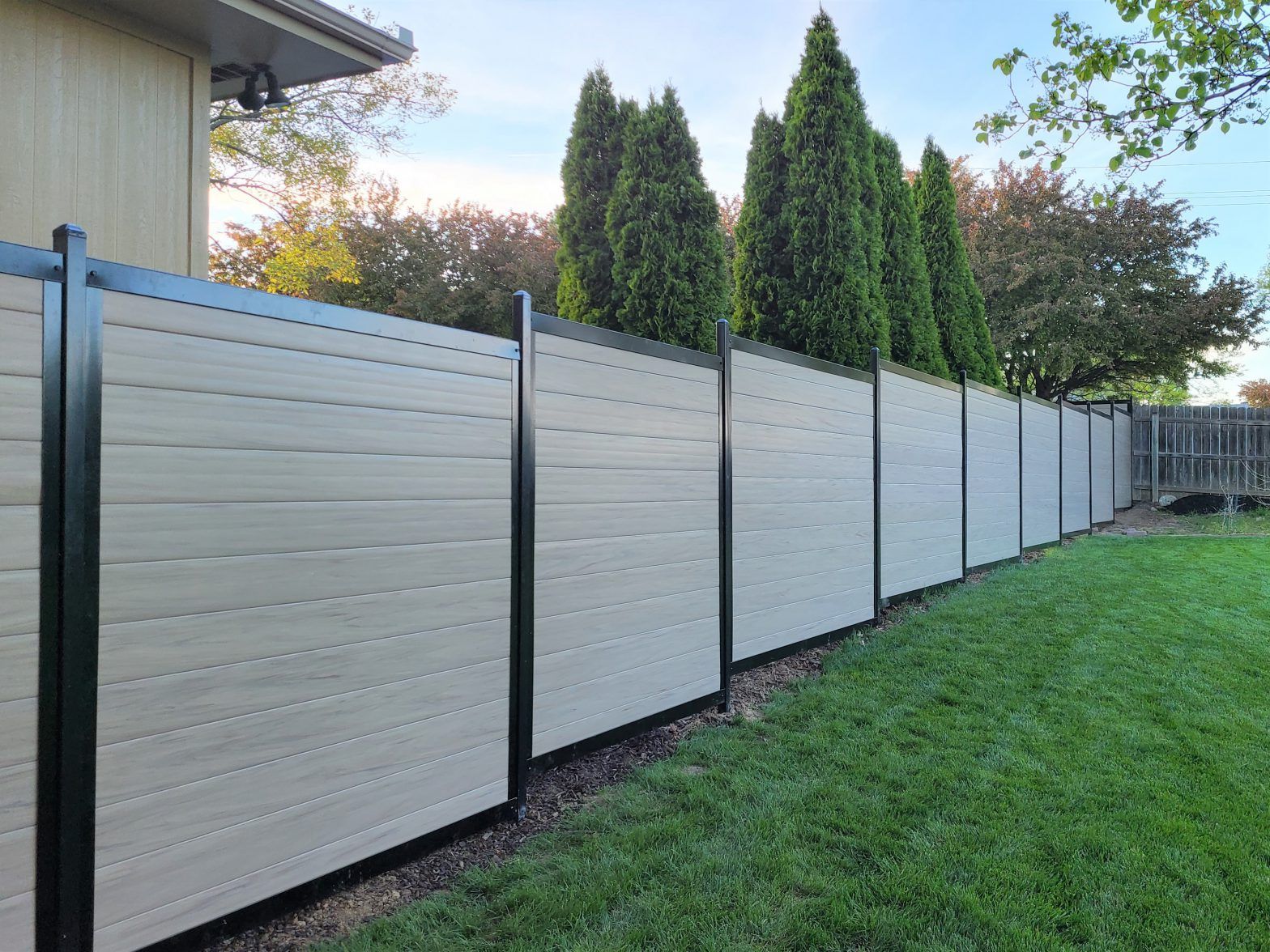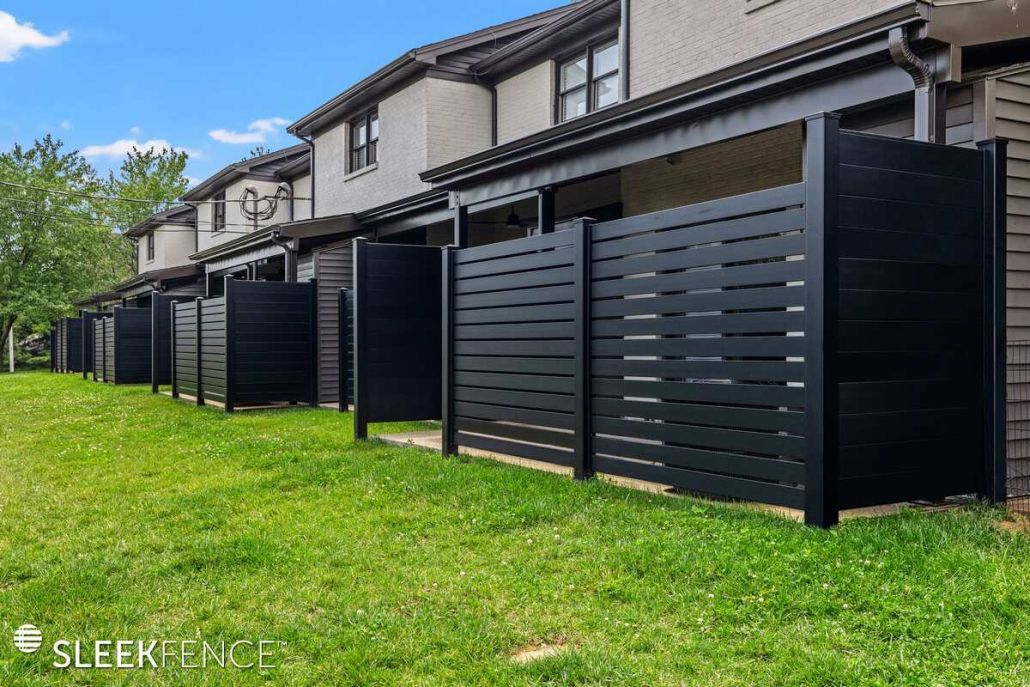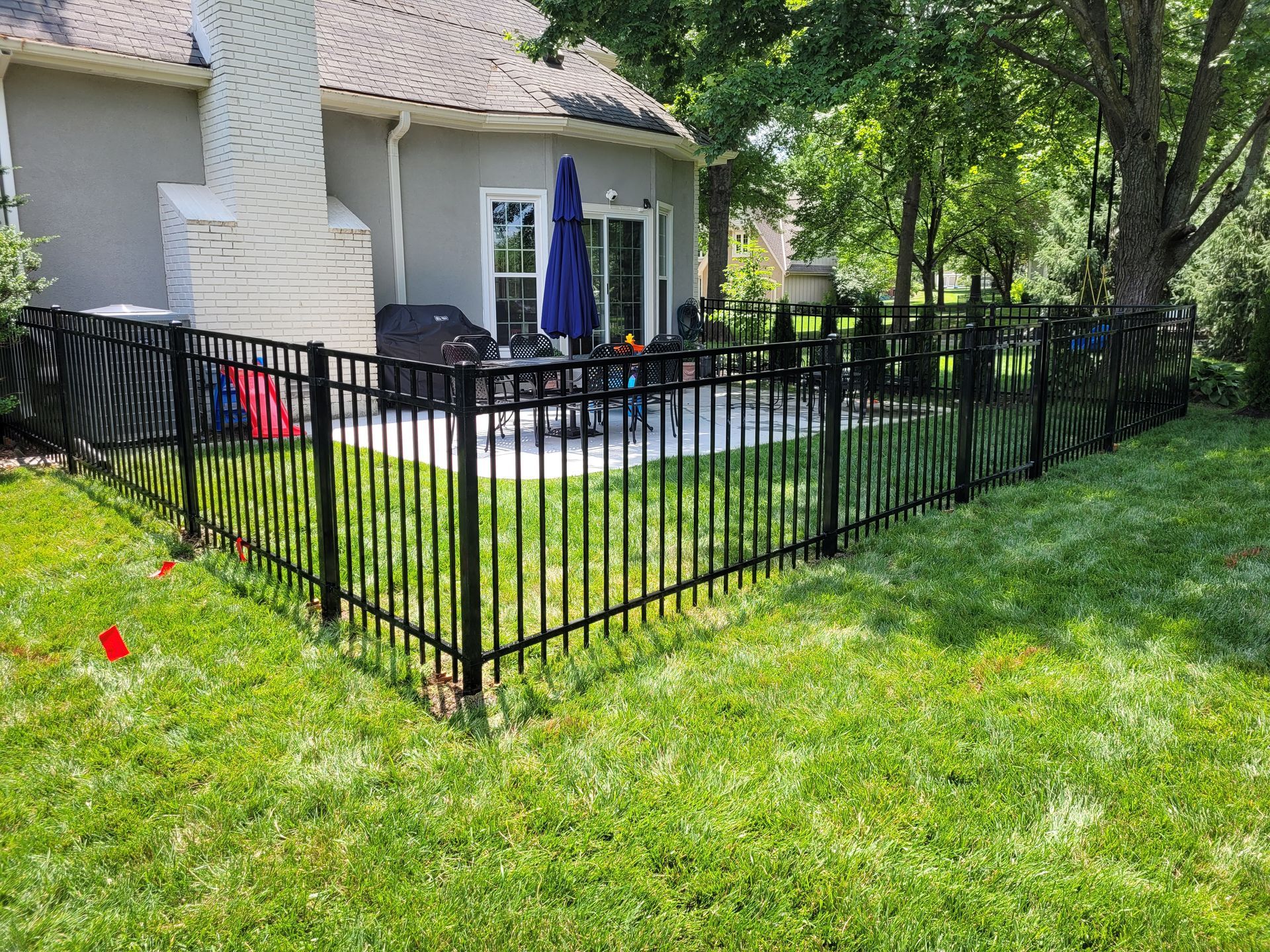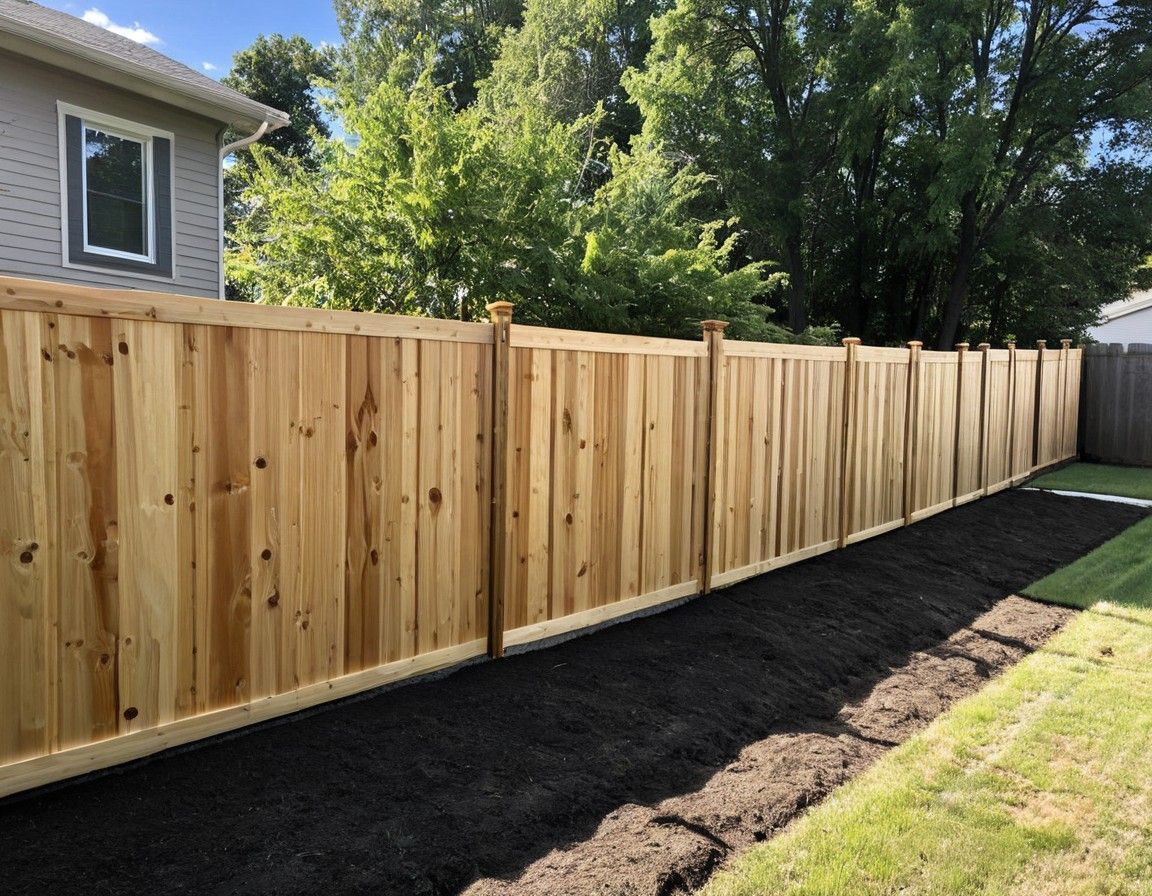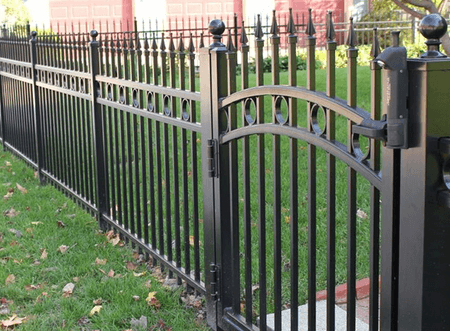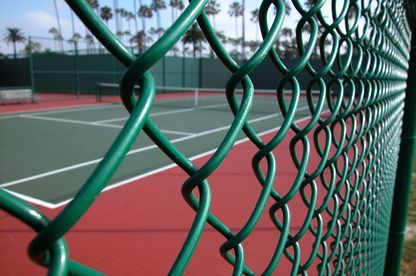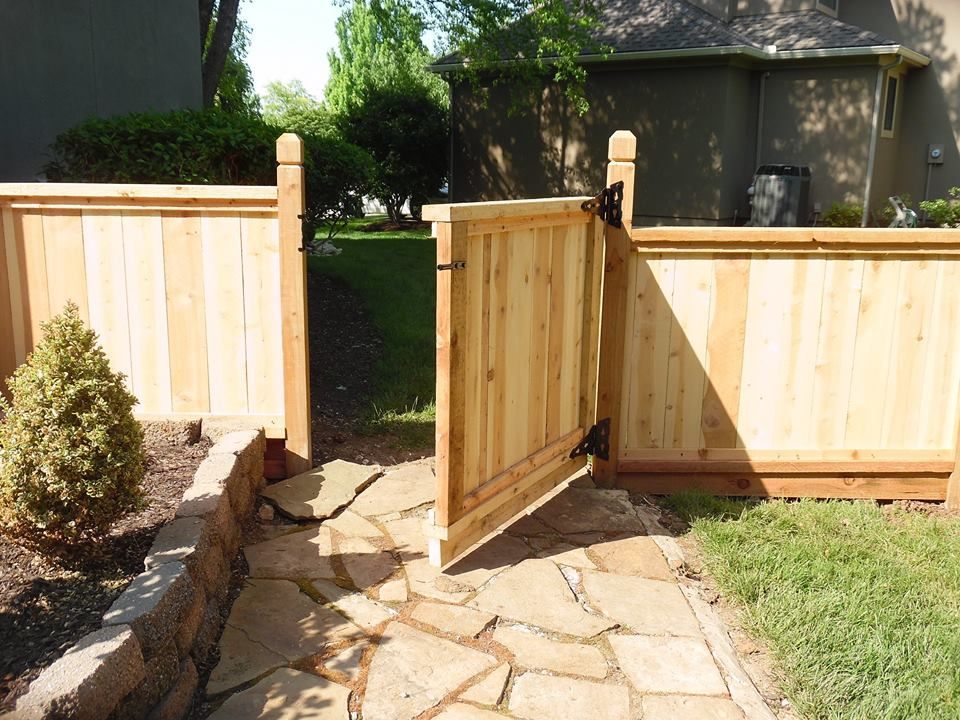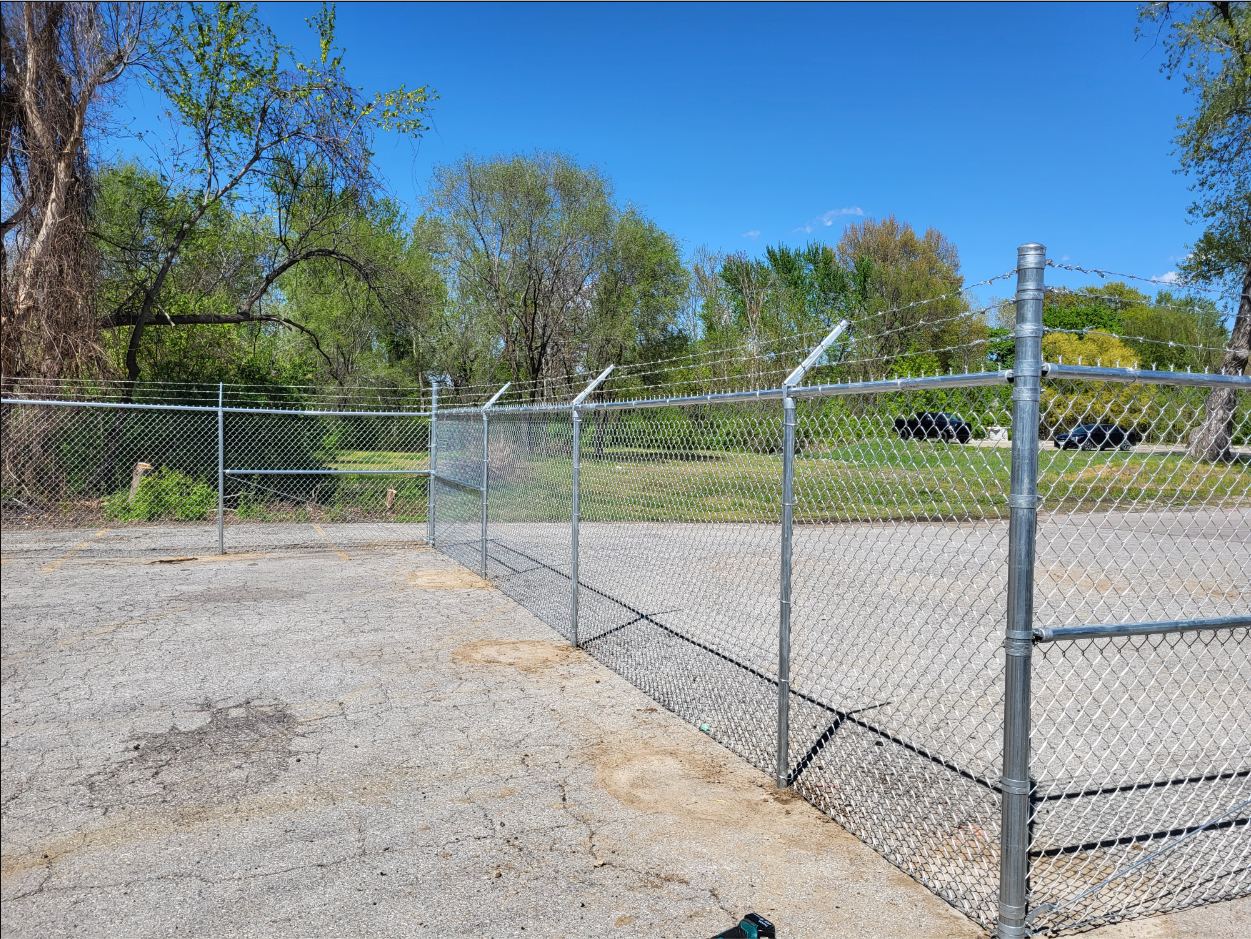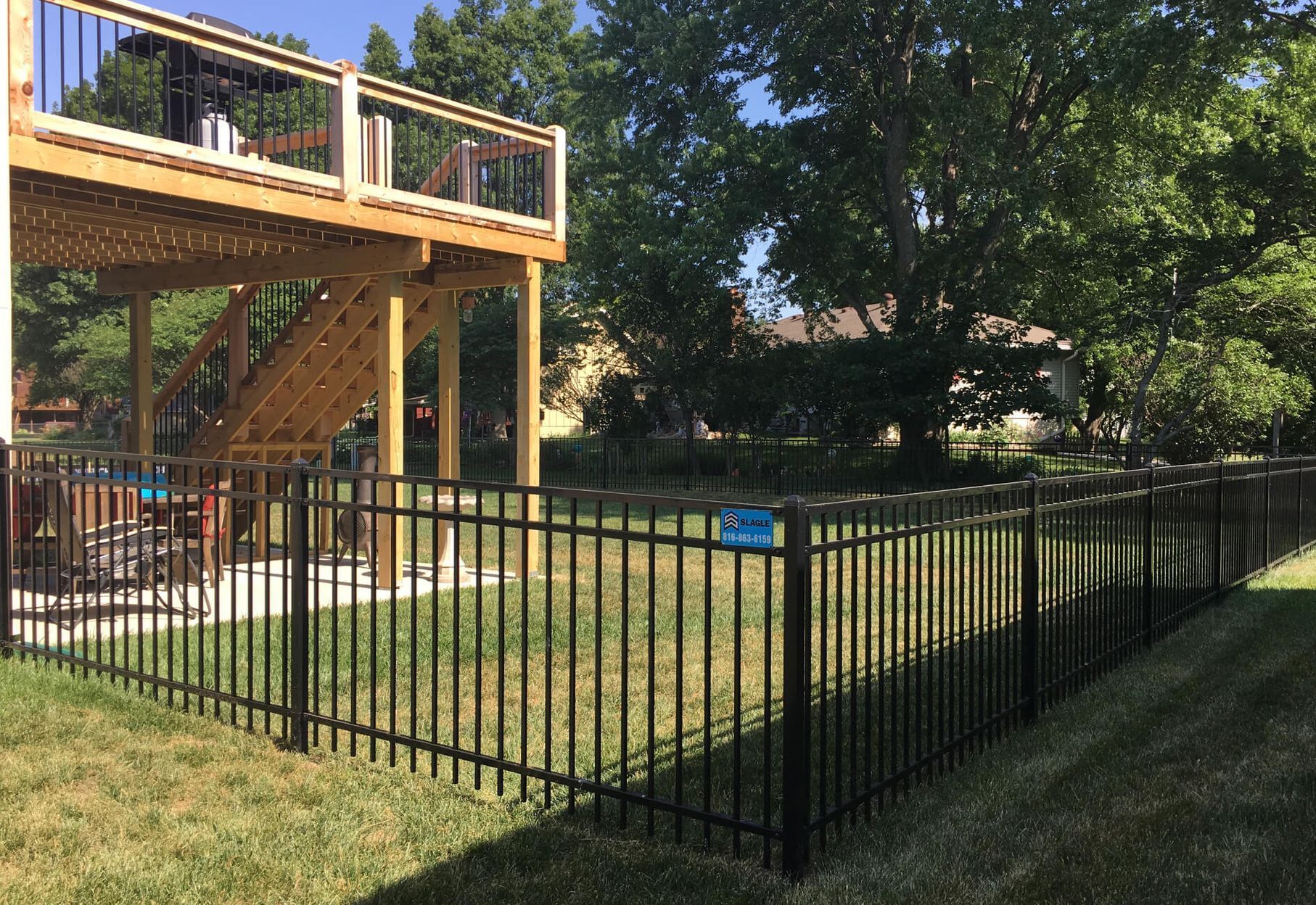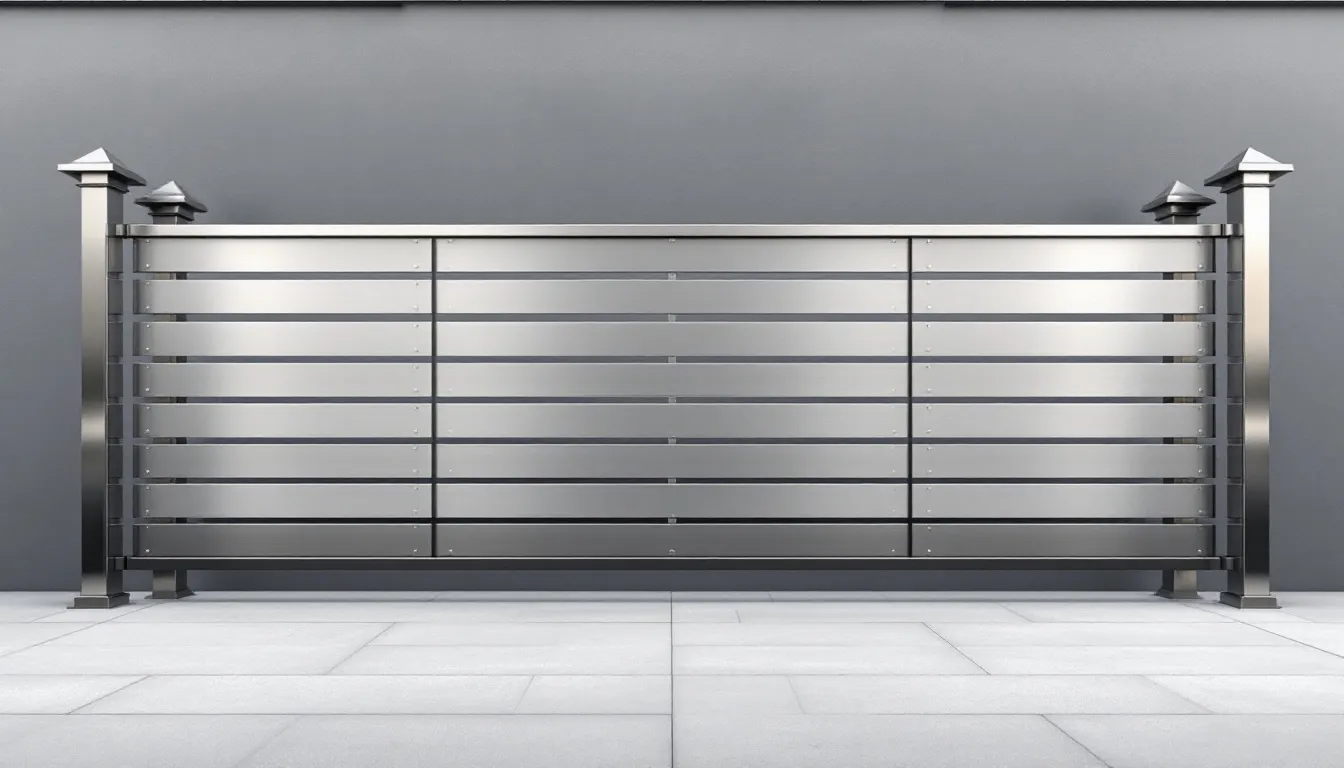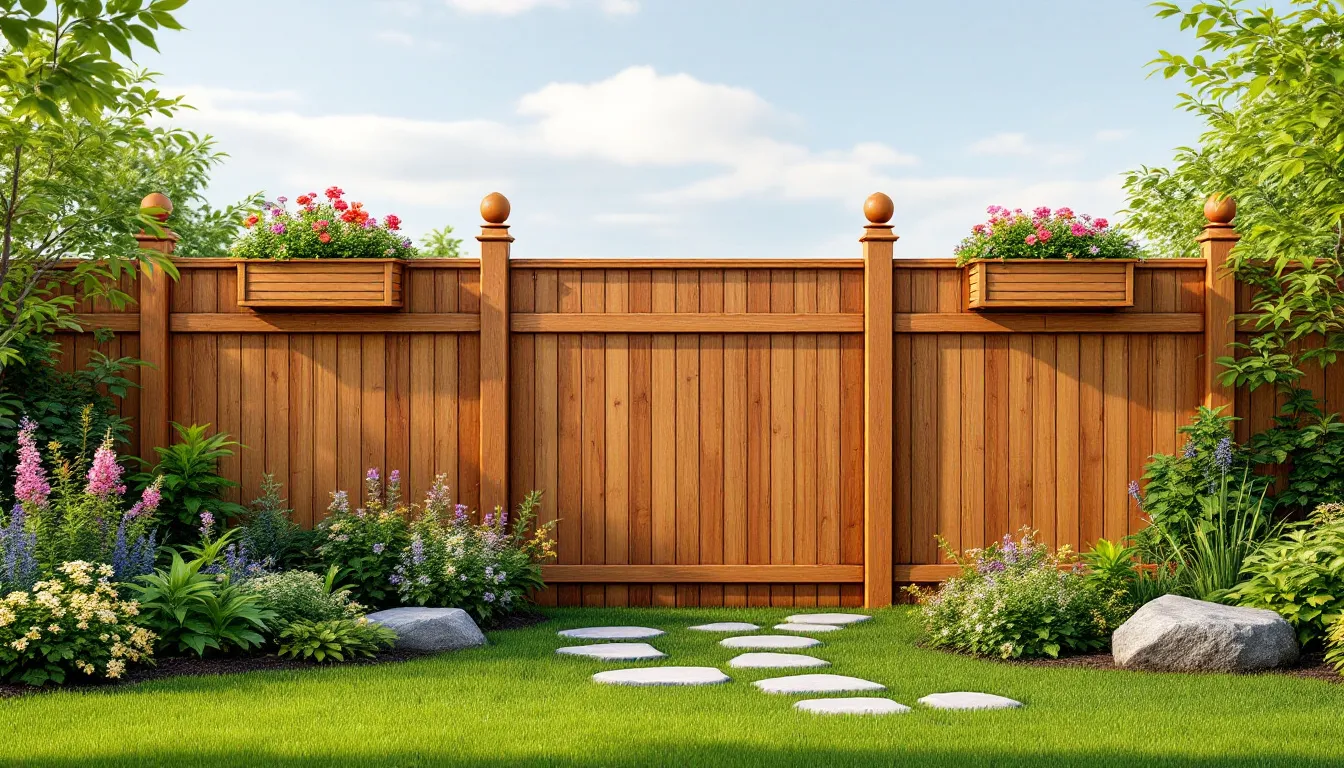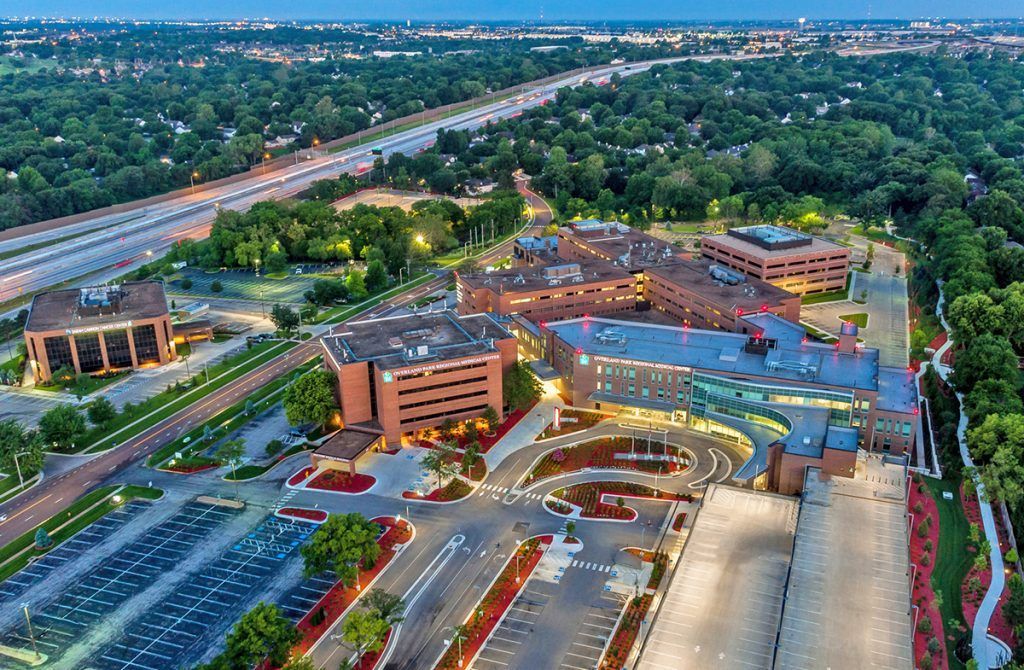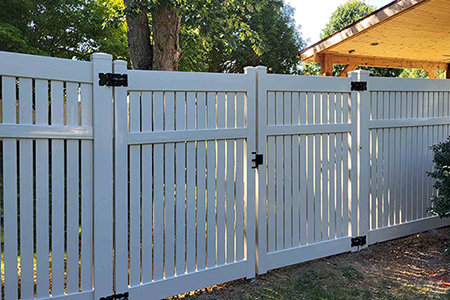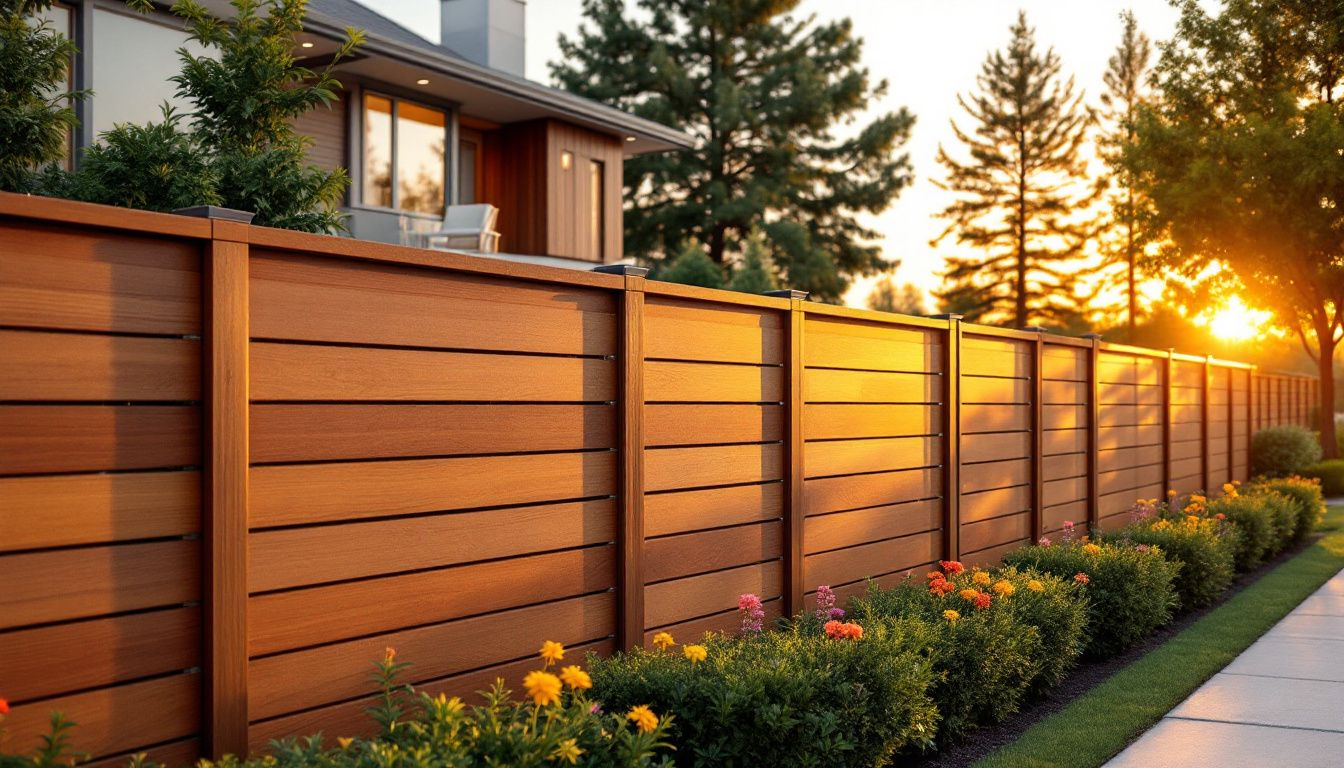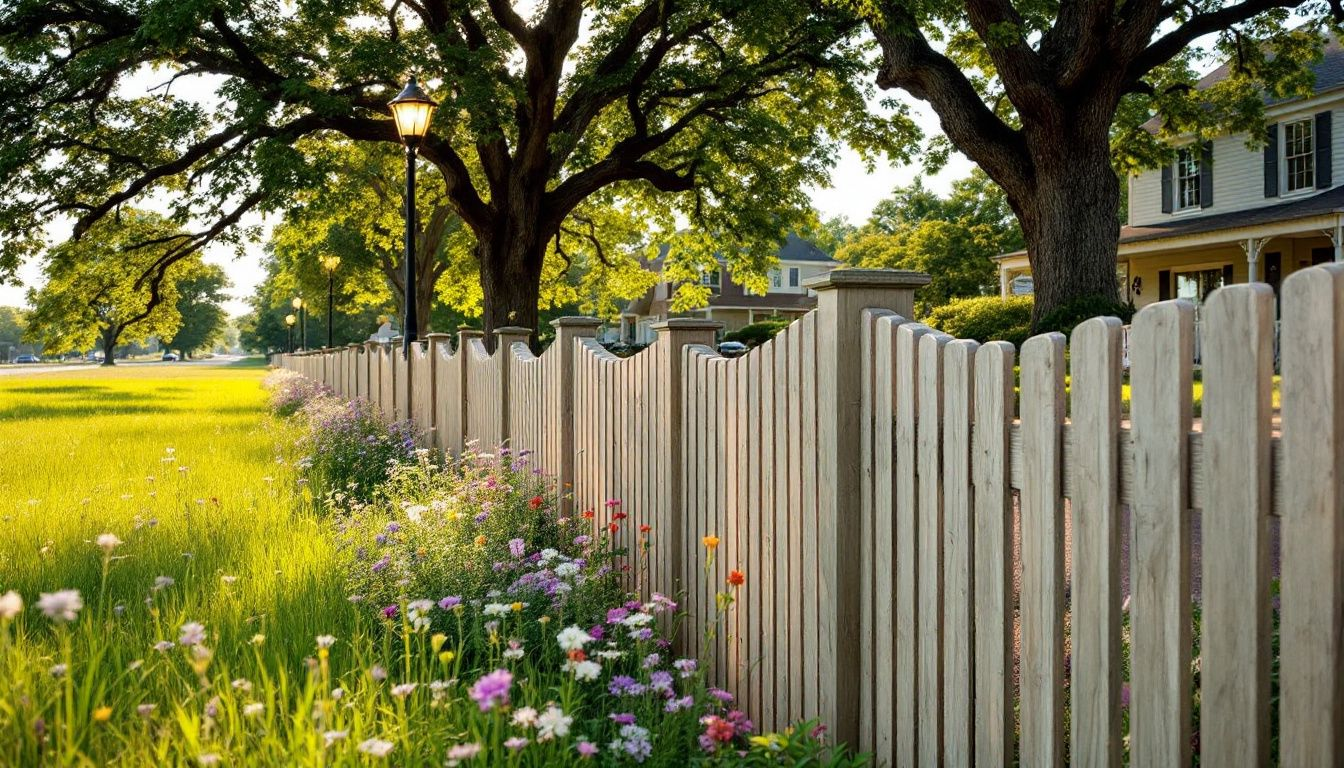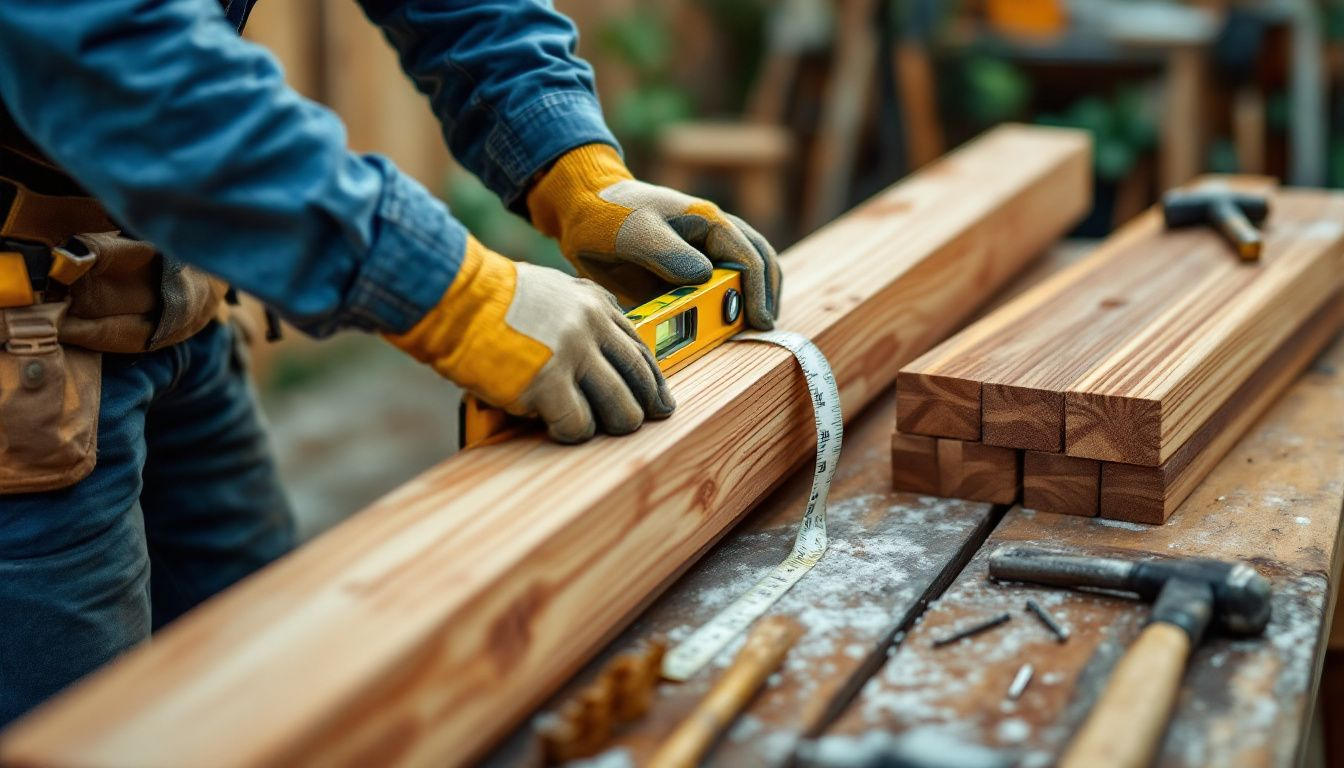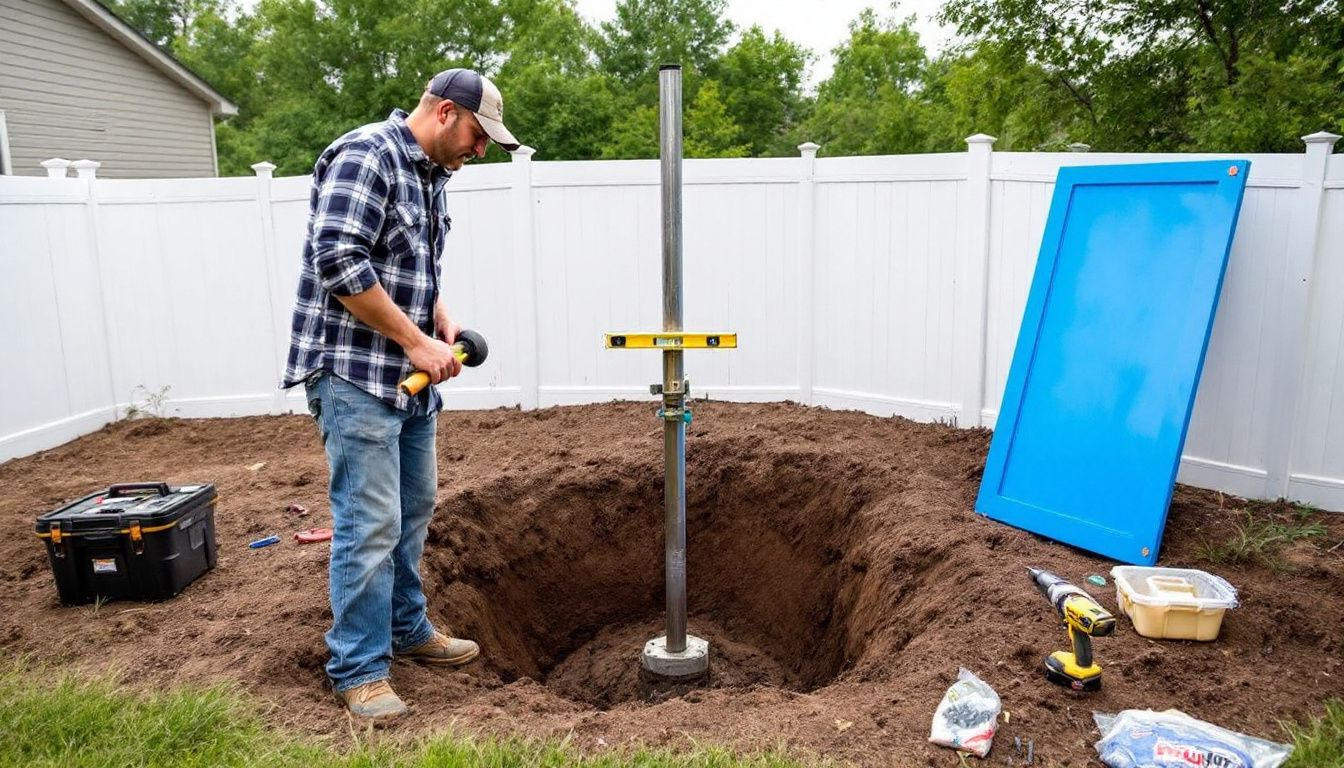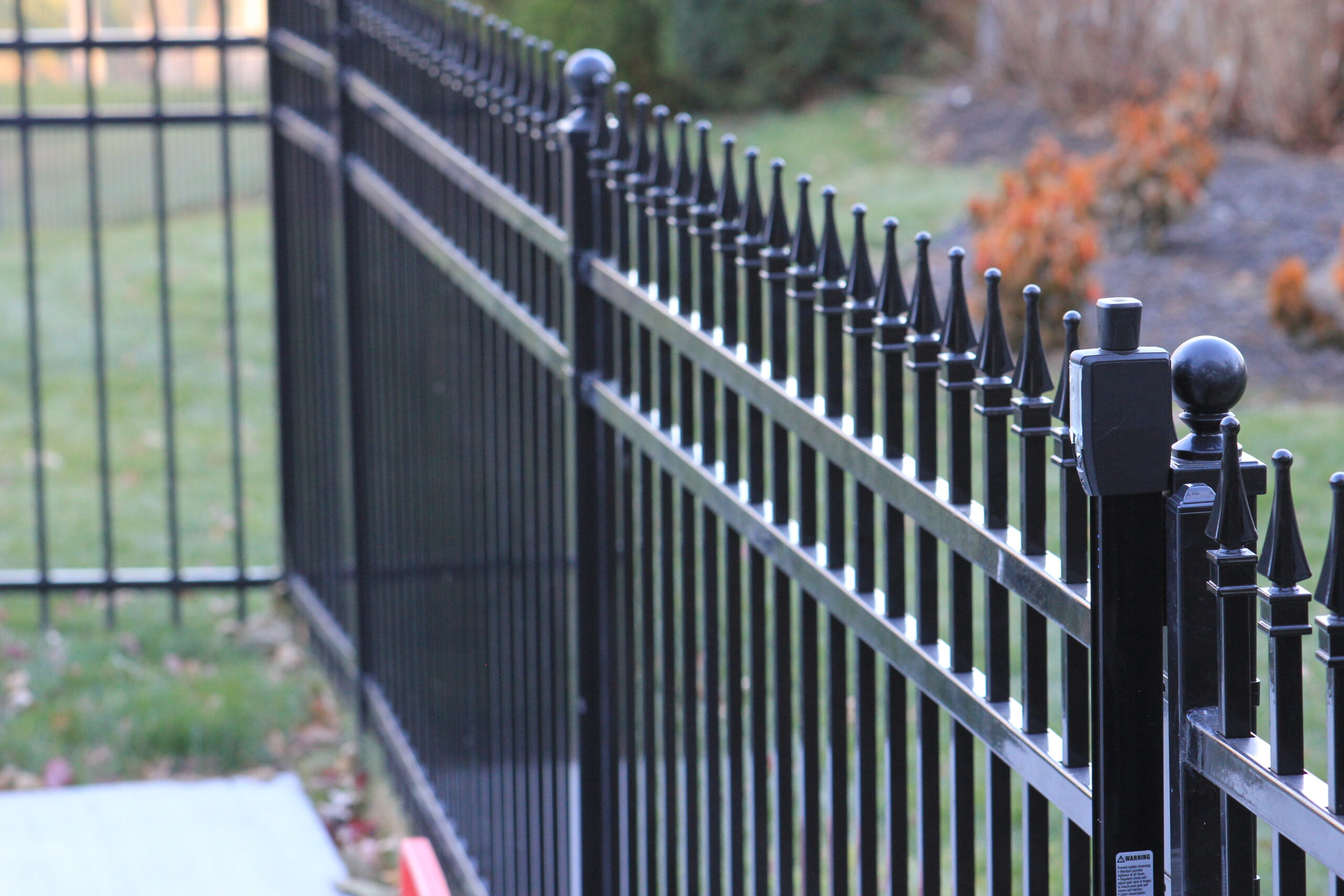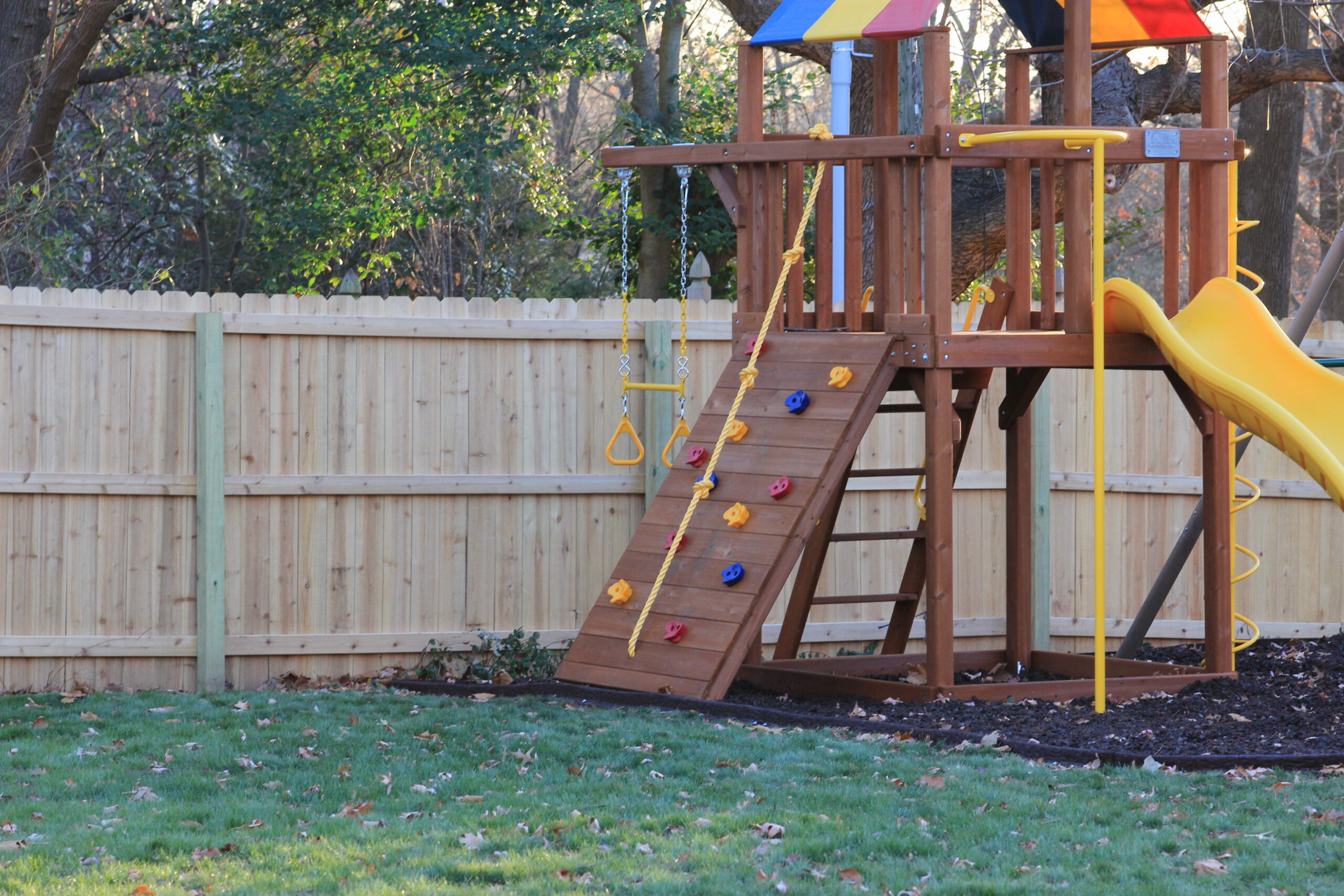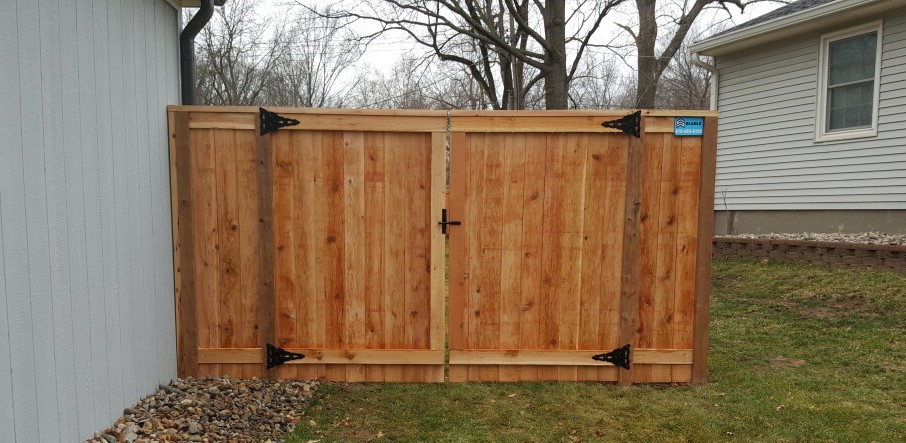When choosing a commercial fence, understanding the different options available is crucial. This article will guide you through the various types of commercial fencing, highlighting their features and benefits. Whether you need security, privacy, durability, or aesthetic appeal, you’ll find a fencing solution that fits your business needs.
Key Takeaways
-
Chain link fencing is an affordable, low-maintenance option ideal for property security, though it offers limited privacy.
-
Vinyl and composite fencing provide durability and aesthetic versatility, requiring less upkeep compared to wood fencing, which needs regular maintenance.
-
Key factors in selecting commercial fencing include security needs, budget constraints, local zoning compliance, and the quality of installation from a qualified contractor.
Chain Link Fencing
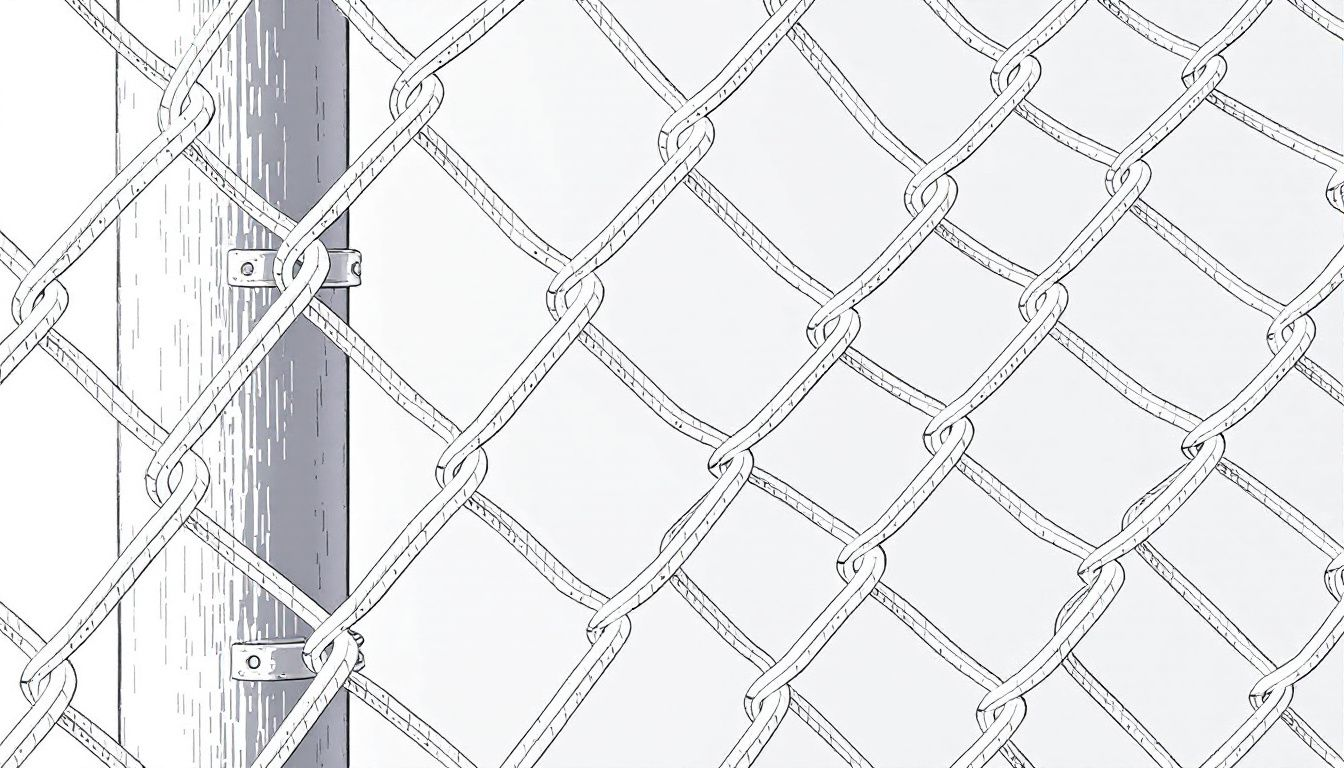
Chain link fencing is a staple in the world of commercial fences, known for its affordability and low maintenance. Made from galvanized steel, the chain link pattern is created by interweaving wires into a diamond shape, offering a durable and cost-effective solution for large properties. This type of fencing clearly marks boundaries while requiring minimal upkeep, making it a practical choice for many businesses, including those that utilize commercial chain link fences.
Ideal for warehouses, industrial sites, and schools, chain link fencing provides the necessary security without breaking the bank. For those needing enhanced security, adding features like barbed wire or razor wire can transform a simple chain link fence into a formidable barrier against unauthorized access. However, it’s worth noting that while chain link fences excel in visibility and deterrence, they offer limited privacy.
Whether you’re securing a construction site or an athletic field, chain link fencing remains a versatile and reliable option. Its simplicity, combined with the ability to fortify it with additional security features, ensures that it continues to be a favorite among business owners looking for a robust and economical fencing solution.
Vinyl Fencing
Vinyl fencing has gained popularity in recent years due to its exceptional durability and minimal maintenance requirements. Although it comes with a higher initial cost, its long-term benefits make it a cost-effective choice. Vinyl fences are resistant to water, maintaining their smooth surface over time without the need for painting or staining.
One of the standout features of vinyl fencing is its ease of maintenance. A simple periodic cleaning with a hose is often all that’s needed to keep it looking pristine. Additionally, vinyl fencing offers a variety of styles and colors, allowing businesses to customize the look to match their brand or aesthetic preferences. This versatility makes it suitable for enhancing both security and visual appeal.
However, it’s important to consider that vinyl can become brittle in extreme weather conditions, which may lead to potential cracking. Despite this, the overall durability and low maintenance of vinyl fencing make it an attractive option for many commercial properties looking for a balance between practicality and aesthetics.
Wood Fencing
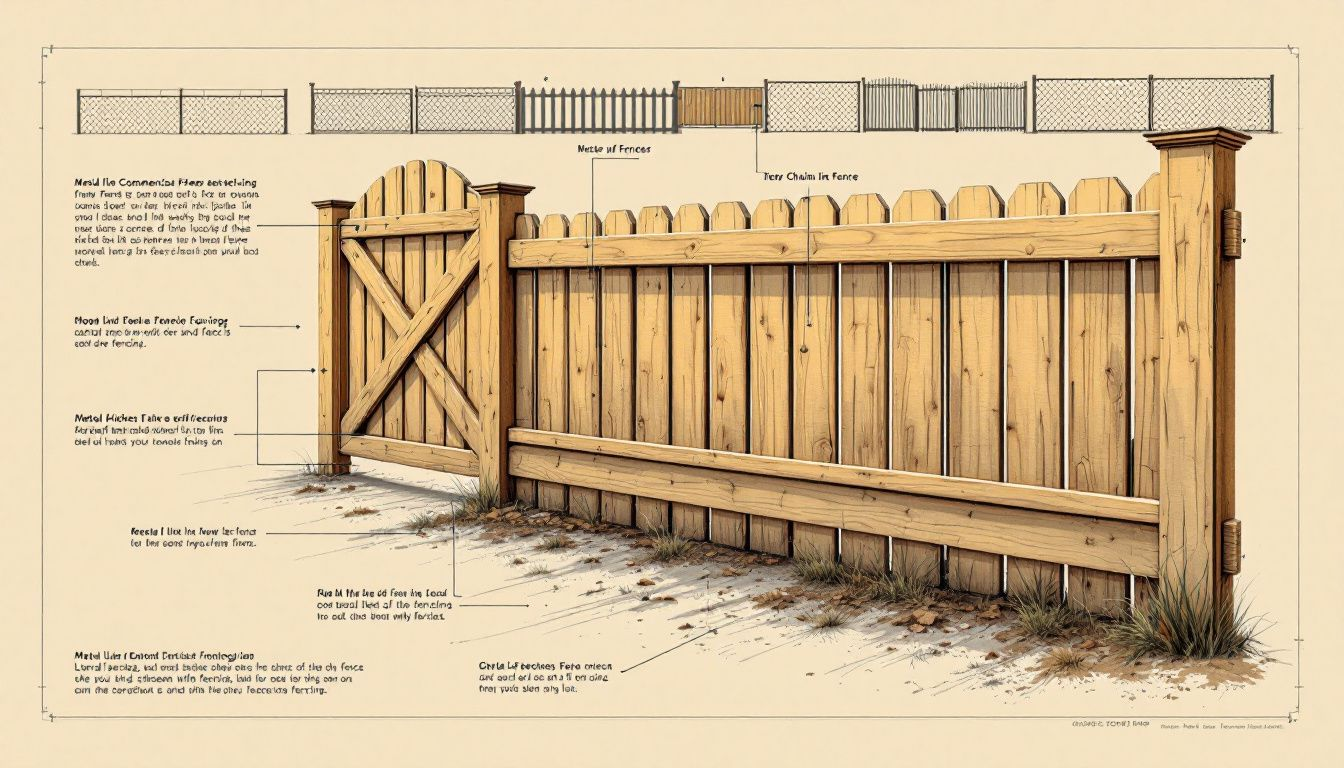
Wood fencing is synonymous with classic charm and natural beauty. Its ability to be tailored with various stains and designs makes it a perfect match for businesses wanting to align their wood fence with their brand identity. The natural aesthetic appeal of wood fencing often surpasses that of other materials, making it a favorite for creating a welcoming atmosphere. Additionally, wood fences provide an excellent option for enhancing outdoor spaces.
Different types of wood, such as redwood and cedar, are commonly used in wood fencing due to their resistance to decay and pests. Pressure-treated pine is another popular choice, offering strength and longevity at a more economical price point. These materials not only enhance the fence’s durability but also contribute to its visual appeal.
However, wood fencing does require regular maintenance to preserve its appearance and structural integrity. This includes periodic inspections, treatments, and repairs to address weather damage and potential pest infestations. Despite the maintenance requirements, wood fencing can last between 5 to 20 years, providing both security and aesthetic enhancement to commercial properties.
Aluminum Fencing
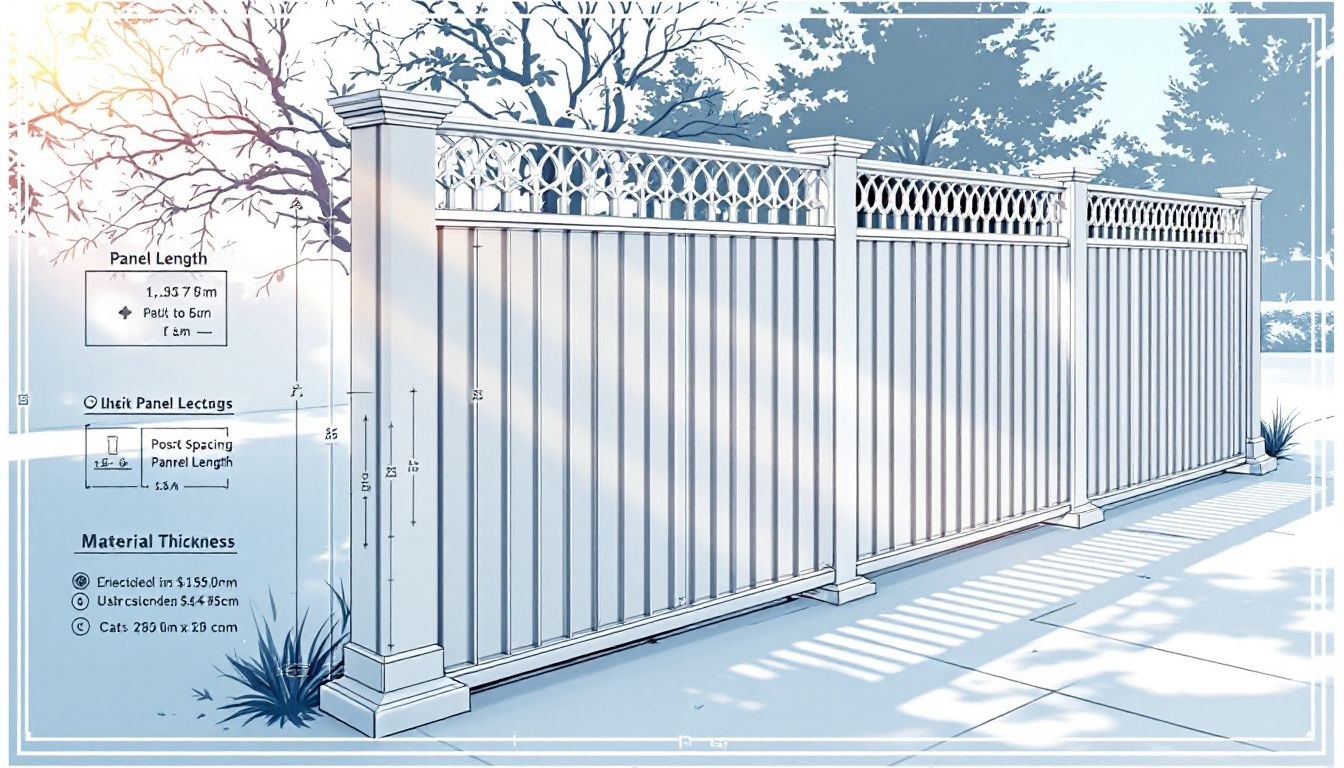
Aluminum fencing stands out for its combination of durability, rust-resistance, and low maintenance. This makes it an ideal choice for a variety of commercial applications, including aluminum fences. The lightweight nature of aluminum allows for thicker materials to be used, enhancing the fence’s strength without adding excessive weight.
Customization is a key advantage of aluminum fencing. It can be designed to mimic the elegant appearance of wrought iron, available in a range of styles and colors to suit different aesthetic preferences. Moreover, aluminum fencing is engineered to prevent gaps at the bottom, making it suitable for properties with sloped ground.
Properties such as office buildings, apartments, and commercial parks are particularly well-suited for aluminum fencing. Its ability to combine functionality with aesthetic appeal makes it a versatile option for businesses looking to enhance both their security and curb appeal.
Ornamental Iron Fencing
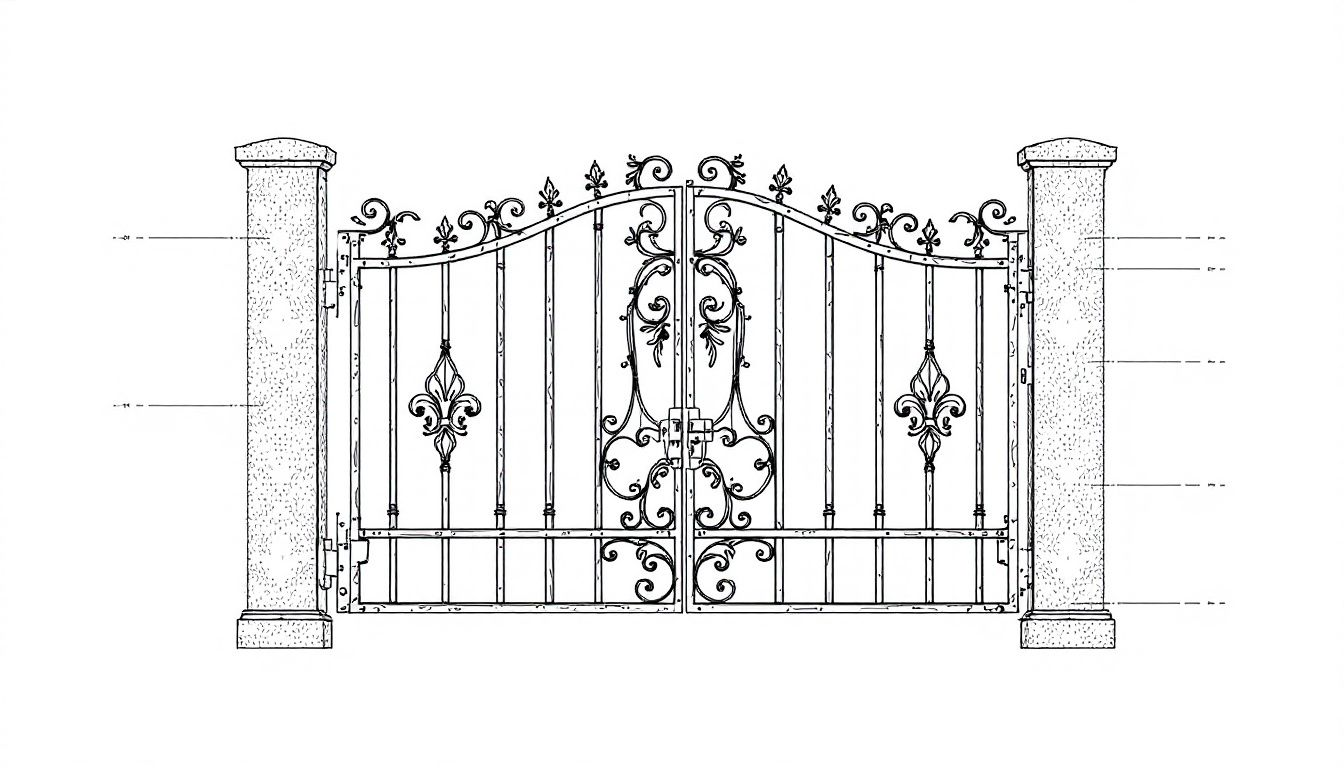
Ornamental fencing, often made from wrought iron, is renowned for its classic and elegant aesthetics. This type of fencing not only enhances the property’s appearance but also conveys a sense of professionalism and sophistication. Businesses often see it as a worthwhile investment due to its dual role in security and aesthetic enhancement.
The strength and durability of wrought iron are significant advantages, ensuring that the fence provides long-term security with minimal maintenance. Additionally, ornamental iron fencing is highly customizable, allowing businesses to create unique designs that fit their branding.
This type of commercial fencing is particularly suited for upscale commercial properties such as hotels, restaurants, and office complexes. Its sophisticated look and robust nature make it a preferred choice for businesses aiming to enhance their property’s curb appeal while ensuring a high level of security. Additionally, there are various types of commercial fencing that can cater to different needs.
Electric Fencing
Electric fencing offers a state-of-the-art solution for robust perimeter security. Unlike traditional barriers that only act as passive deterrents, electric fences provide active deterrence by delivering an electric shock to intruders. This makes them highly effective at preventing unauthorized access.
High-security environments such as military bases, data centers, and correctional facilities benefit greatly from electric fencing. Modern electric fencing systems can integrate with security setups, offering real-time monitoring and alerts to enhance overall security and maintain a secure perimeter. Additionally, electric fences can be powered by solar energy, ensuring functionality even during power outages.
For businesses with sensitive operations or valuable equipment, electric fencing provides an unparalleled level of protection. Its ability to deter intruders actively makes it a critical component of any comprehensive security strategy.
Composite Fencing
Composite fencing, constructed from a mix of recycled plastics and wood fibers, is known for its strength and durability. With a lifespan typically ranging from 25 to 30 years, it significantly outlasts traditional wood options. This makes it a cost-effective choice for businesses looking for long-term fencing solutions.
One of the main advantages of composite fencing is its low maintenance. It does not require sealing, staining, or painting, reducing the upkeep demands significantly. Additionally, composite fencing offers a modern and minimalistic aesthetic, providing the natural look of wood or stone without the associated maintenance.
Installation of composite fences is also easier compared to other materials due to their lightweight nature. This not only reduces the labor costs but also speeds up the installation process, making it an efficient choice for commercial properties.
Key Considerations When Choosing Commercial Fencing
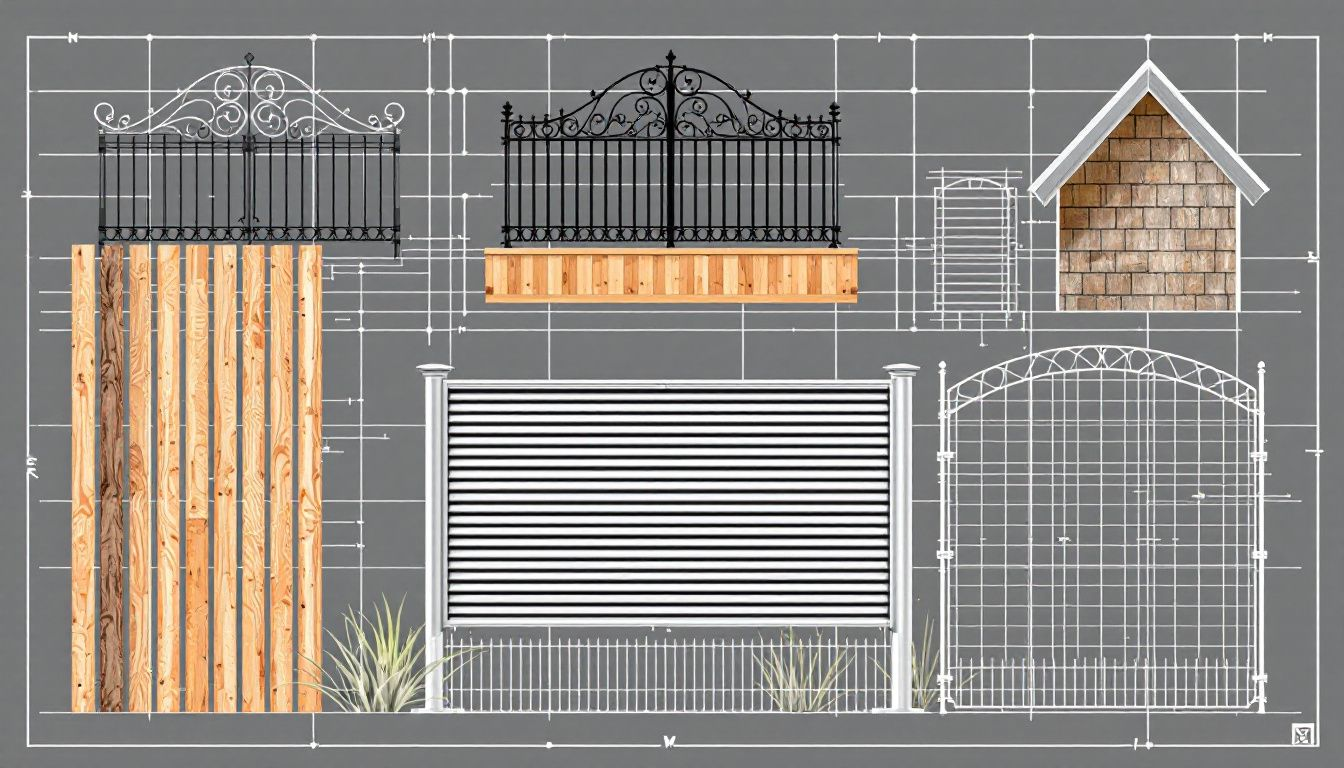
Selecting the right commercial fencing options involves several key considerations. Security needs are paramount, with different styles offering varying levels of visibility and privacy. For instance, chain link fencing provides visibility, making it harder for intruders to conceal themselves. On the other hand, solid options like vinyl fencing boost privacy and security while enhancing style.
Budget is another crucial factor. The cost of commercial fences can range significantly, from $4,000 to $18,000 per section, depending on the material and installation complexity. Chain link fencing is generally cheaper, making it a budget-friendly choice. Factors influencing the cost include the size of the property, chosen material, and local labor costs.
Compliance with local zoning laws is essential to ensure the fence adheres to height, material, and design regulations. Local zoning regulations can dictate specific requirements, and businesses must check these before installation. Additionally, the fence should align aesthetically with the property’s style to enhance the overall brand image and customer appeal.
Finally, maintenance considerations should not be overlooked. Different materials have varying upkeep demands, and understanding these can help in making an informed decision. Whether it’s the regular staining of wood or the occasional cleaning of vinyl, maintenance plays a critical role in the longevity and appearance of the fence.
Choosing the Right Contractor for Your Commercial Fence
Choosing the right contractor is as important as selecting the right fence. Verifying that the contractor has the necessary licenses, insurance, and certifications for commercial fence installations is crucial. This ensures that the project complies with local regulations and is protected against potential liabilities.
Assessing the contractor’s experience can provide confidence in their ability to deliver quality work. Reviewing their portfolio and requesting references can offer insights into their craftsmanship and the satisfaction levels of previous clients. Using high-quality materials and skilled workmanship is essential for the durability and functionality of the fence.
Effective communication and customer service should not be underestimated. A contractor who prioritizes these aspects is more likely to ensure the project runs smoothly and meets your specific needs. By choosing the right contractor, businesses can achieve a professional and durable fencing solution that enhances their property.
Maintaining Your Commercial Fence
Regular maintenance is key to ensuring the longevity and effectiveness of your commercial fence. Conducting regular inspections can help detect damage, rust, or loose components, allowing for prompt repairs to maintain the fence’s integrity. This proactive approach can prevent minor issues from escalating into significant problems.
Different materials have specific maintenance needs. For example:
-
Chain link fencing requires occasional washing, checking for loosened nuts and bolts, and oiling hinges to ensure smooth operation.
-
Wood fencing is vulnerable to moisture and insects, necessitating regular treatment and the application of weather-resistant sealants.
-
Wrought iron fences need regular maintenance to prevent rust and corrosion, preserving their durability and appearance.
Preventive measures, such as trimming vegetation near the fence, can also help maintain its condition. This prevents moisture retention and potential damage. By staying on top of maintenance, businesses can ensure their commercial fences continue to provide security and aesthetic appeal for years to come.
Summary
In summary, choosing the right commercial fencing requires careful consideration of security needs, budget, compliance with local regulations, and maintenance demands. From the affordable and versatile chain link fencing to the elegant and durable ornamental iron, each type offers unique benefits that cater to different business requirements.
By understanding the specific advantages and considerations of each fencing material, businesses can make informed decisions that enhance their property’s security and curb appeal. Whether you’re looking to secure a warehouse, enhance the aesthetics of a hotel, or protect sensitive operations, the right commercial fence can make all the difference.
Frequently Asked Questions
What are the main benefits of chain link fencing for commercial properties?
Chain link fencing provides an affordable, low-maintenance solution that establishes clear visual boundaries, making it especially suitable for large commercial properties such as warehouses and schools. Its durability ensures long-lasting security and delineation of space.
How does vinyl fencing compare to wood fencing in terms of maintenance?
Vinyl fencing is superior in maintenance compared to wood fencing, requiring only occasional cleaning, while wood needs regular treatments and inspections to prevent damage and pests. Thus, for a low-maintenance option, vinyl is the better choice.
Why is aluminum fencing a popular choice for commercial properties?
Aluminum fencing is a popular choice for commercial properties due to its durability, rust resistance, and low maintenance requirements. Additionally, its high customization options allow it to fit various applications effectively.
What types of businesses benefit most from electric fencing?
Electric fencing is especially beneficial for high-security environments like military bases, data centers, and correctional facilities, as it enhances security and can integrate with existing systems. This active deterrent helps to protect valuable assets effectively.
What are the key considerations when choosing a commercial fencing contractor?
When choosing a commercial fencing contractor, ensure they have valid licenses, insurance, and certifications while also evaluating their experience and portfolio. Effective communication and a focus on customer service should also be key priorities in your decision-making process.


